Health Information Security – My Interview with Richard Kaufmann, CISO of Amedisys, Part 3: The Futures of Cybersecurity in Healthcare
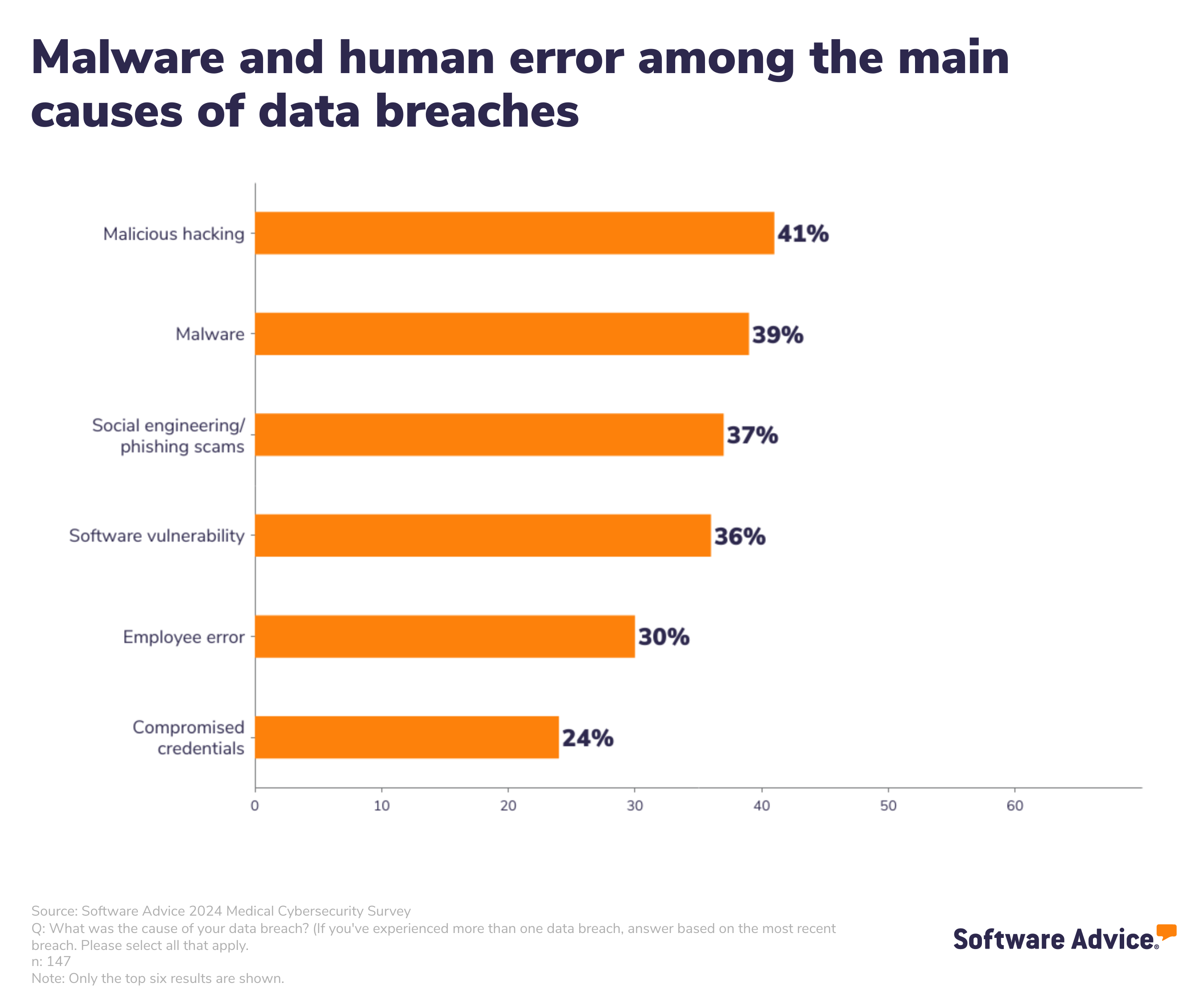
At least one-half of U.S. health care organizations have experienced a data breach, one-third in the last 3 years, according to Software Advice’s 2024 Healthcare Data Security Survey released in May 2024. Of the health care organizations who experienced ransomware attacks, one-third did not recover patient data from the cyber-attackers, Software Advice learned. Clearly, cyberattacks are impacting patient care. And the growth of home care, hospital-to-home, and greater self-care are also increasing risks for cybersecurity. The growing adoption of digital technologies in healthcare, from the hospital to the doctor’s office to the home,
How to Get Better Care to More People? Address Burnout, Bridge Insights with AI, Embed Sustainability – the Philips Future Health Index 2024
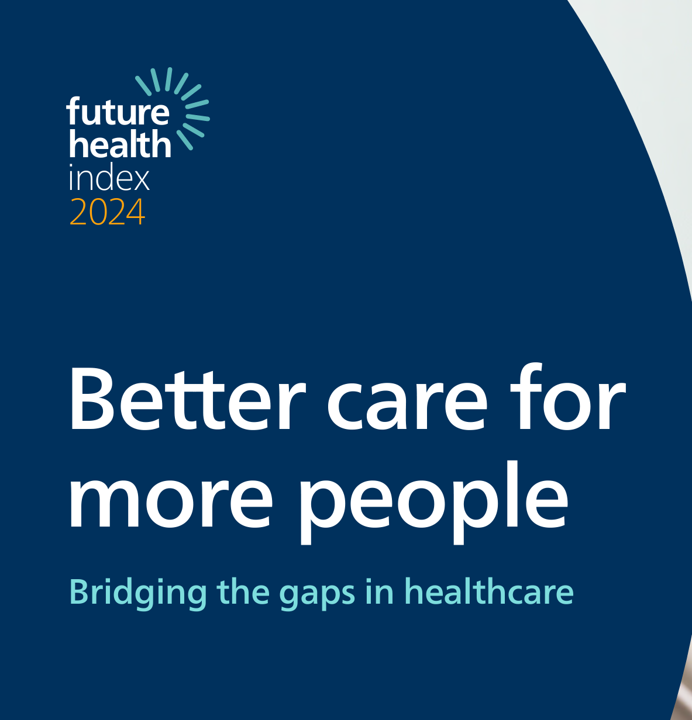
Health care access is a challenge in rural and urban areas, cities and suburbs, and across more demographic groups than you might realize, as we see wait times grow for appointments, primary care shortages, and delays in screening plaguing health systems around the world. In the Future Health Index 2024, Philips’ latest annual report presents a profile of the state of health care focused on how to provide better care for more people. For the report, Philips surveyed a total of 2,800 healthcare leaders consisting of 200 respondents in 14 countries: Australia, Brazil, China,
Is There an Easy-Button for AI In Healthcare Team Well-Being? Exploring a New PC with Embedded AI
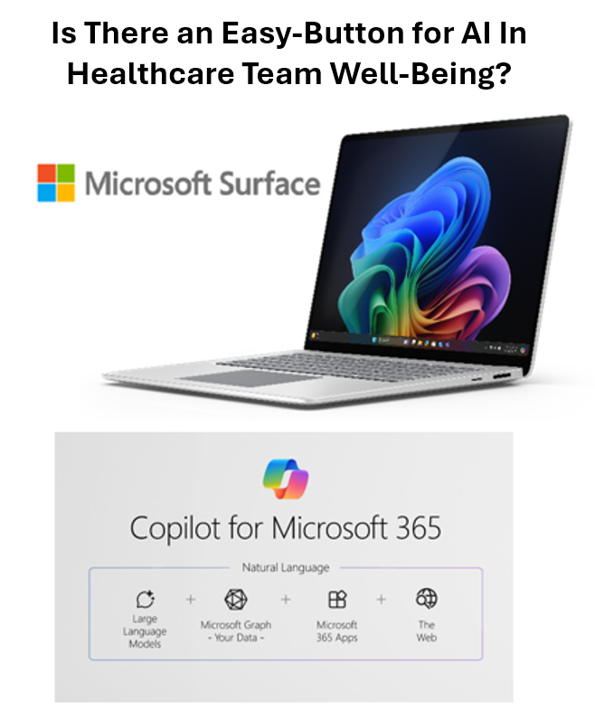
“The greatest opportunity offered by AI is not reducing errors or workloads, or even curing cancer: it is the opportunity to restore the precious and time-honored connection and trust,” Dr. Eric Topol wrote in his 2019 book, Deep Medicine: How Artificial Intelligence Can Make Healthcare Human Again. In the five years since Dr. Topol looked for AI to bolster the human-touch in health care, we’ve lived, worked, and muddled our way through the COVID-19 pandemic and witnessed the growing epidemic of burnout among clinicians, the front-line of medical care. I recalled Dr. Topol’s assertion on AI’s promise for humanizing health
Health Information Security – My Interview with Richard Kaufmann, CISO of Amedisys – Part 2: Bit by Bit, Putting It Together – Planning, Implementing, Pivoting
Welcome to post #2 of 3, publishing the results of three dialogue sessions between Richard Kaufmann, CISO of Amedisys, and me. The timing of our conversations, tracking both Richard’s and the company’s evolving approach to cybersecurity in health care, has coincided with the Change Healthcare breach and ransom that emerged in February 2024. This second blog of the three is being edited just days after Andrew Witty’s testimony to the U.S. Senate Finance Committee which convened a hearing on May 1st themed, “Hacking America’s Health Care: Assessing the Change Healthcare Cyber Attack and What’s Next.” UnitedHealth Group acquired Change Healthcare
Leveraging Trust, Showing Humility: How Health Care Organizations Can Serve Consumers – A New Read from McKinsey
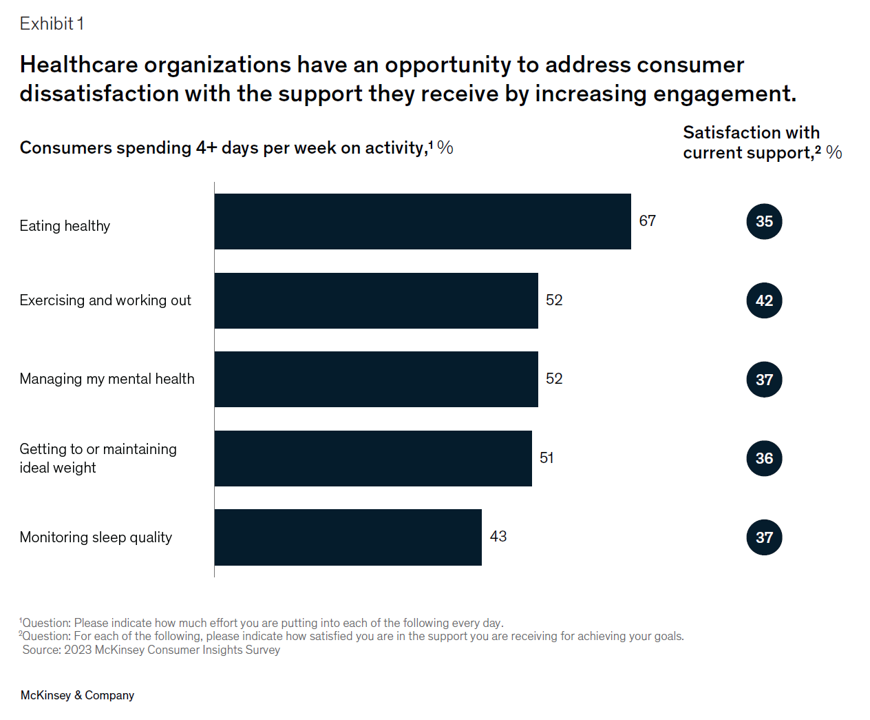
Three trends underpin health consumers’ evolving demands for service: spending more but getting less satisfaction and innovation; trusting health care with data but underwhelmed by the use of that personal information; and, growing “shopping” behavior seeking quality, availability, proximity, cost, and options across channels for health care. That’s the current read from McKinsey & Company’s team noting that Consumers rule: Driving healthcare growth with a consumer-led strategy. In this health consumer update, McKinsey spoke with three consumer marketing experts from other industries to learn best practices on how best to “be there”
Healthcare 2030: Are We Consumers, CEOs, Health Citizens, or Castaways? 4 Scenarios On the Future of Health Care and Who We Are – Part 2
This post follows up Part 1 of a two-part series I’ve prepared in advance of the AHIP 2024 conference where I’ll be brainstorming these scenarios with a panel of folks who know their stuff in technology, health care and hospital systems, retail health, and pharmacy, among other key issues. Now, let’s dive into the four alternative futures built off of our two driving forces we discussed in Part 1. The stories: 4 future health care worlds for 2030 My goal for this post and for the AHIP panel is to brainstorm what the person’s
Healthcare 2030: Are We Consumers, CEOs, Health Citizens, or Castaways? 4 Scenarios On the Future of Health Care and Who We Are – Part 1
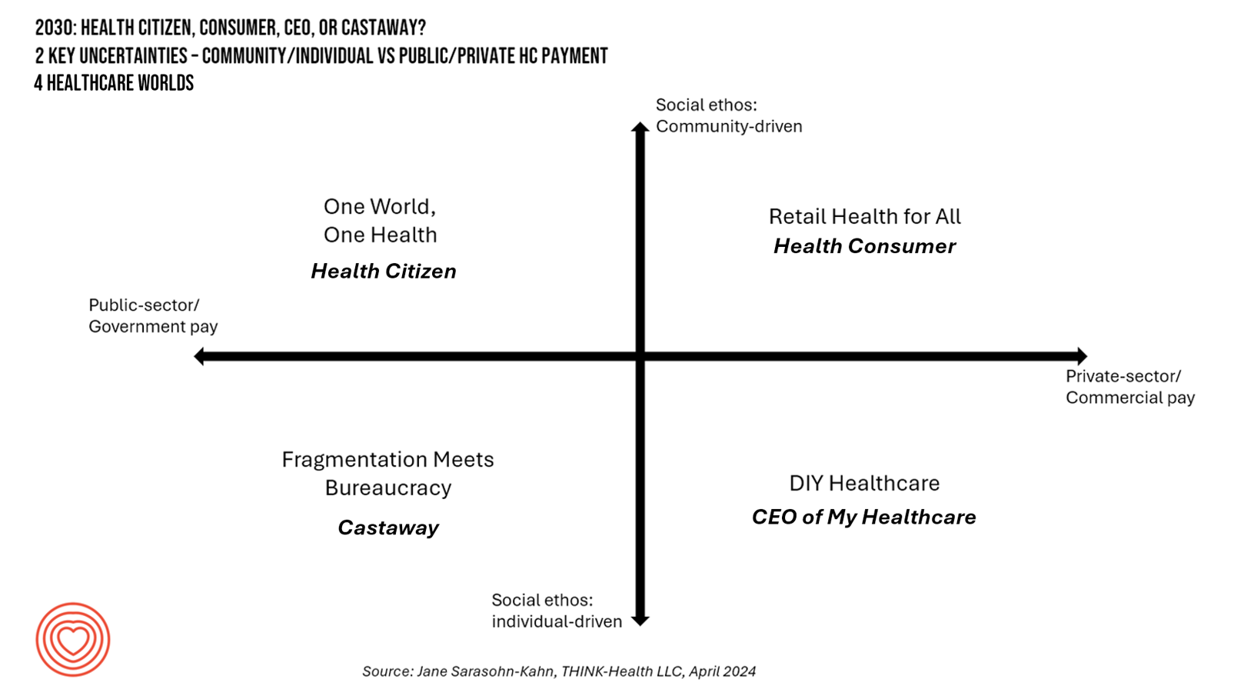
In the past few years, what event or innovation has had the metaphorical impact of hitting you upside the head and disrupted your best-laid plans in health care? A few such forces for me have been the COVID-19 pandemic, the emergence of Chat-GPT, and Russia’s invasion of Ukraine. That’s just three, and to be sure, there are several others that have compelled me to shift my mind-set about what I thought I knew-I-knew for my work with organizations spanning the health care ecosystem. I’m a long-time practitioner of scenario planning, thanks to the early education at the side of Ian
A Vote for Telehealth is a Vote for American Patients’ and Doctors’ Well-Being
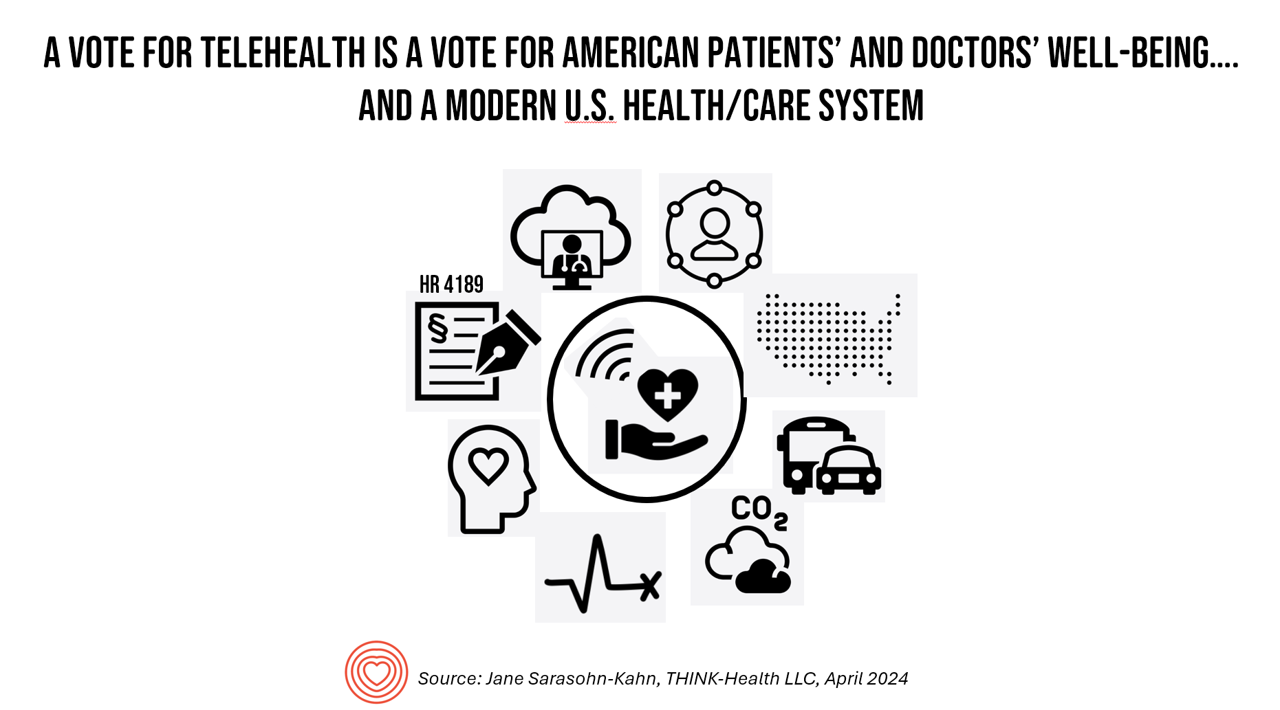
Whether you’re a patient or a physician in the U.S., you’re burned out, tapped out, stressed out, timed out. While the 118th U.S. Congress can’t agree on much before the 2024 summer recess, there’s one bipartisan stroke of political pens in Washington, DC, that could provide some satisfaction for both patients and doctors: bring telehealth back to patients and providers permanently. Those pens would do two things to modernize American health care for both patients and doctors: first, Congress would pass the CONNECT for Health Act (HR 4189. S 2016) and second, re-introduce and sign the Telehealth Modernization Act.
While Virtual Care is “Table Stakes” in Health Care, Consumers Are Growing More Protective About Data-Sharing
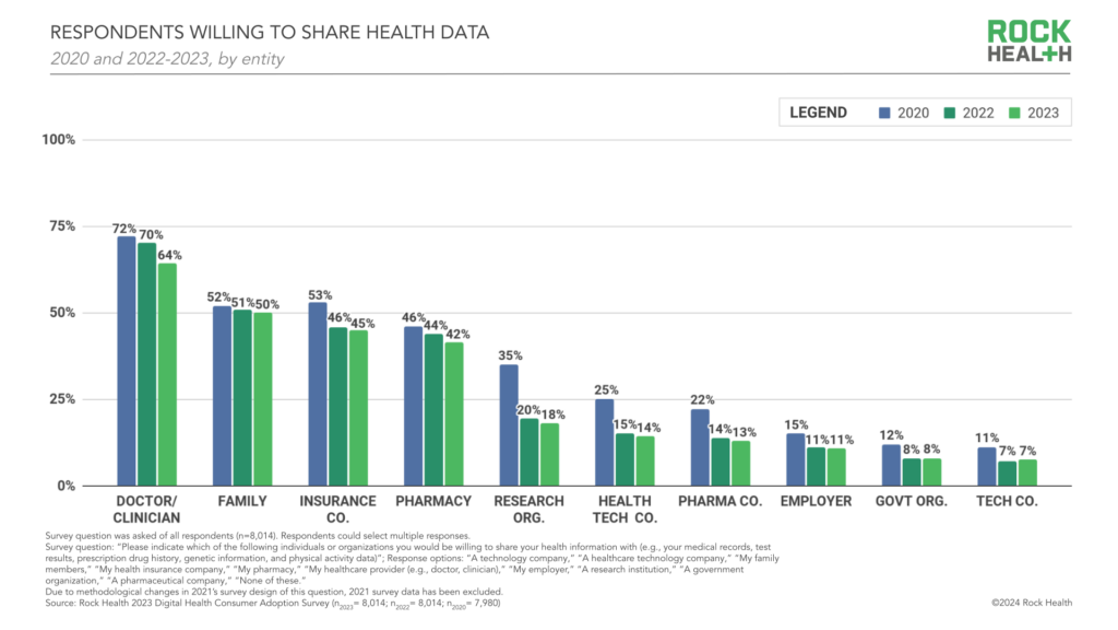
Three in four people in the U.S. have used virtual care, now, “Table-stakes…here to stay for patients and providers. However, that ubiquity comes with its own set of market pressures…shifting from pandemic-responsiveness to market- and consumer- responsiveness,” according to The new era of consumer engagement, Rock Health’s ninth annual Consumer Adoption Survey published 18 March. Convenience and waiting time are the top two reasons for choosing virtual over in-person care, Rock Health found. While virtual care is ubiquitous across the U.S. health care delivery landscape, patients-as-health care consumers are becoming more savvy and discriminating based
AI: Patients Included

“Clinical transformation with AI is easier without patients.” When Dr. Grace Cordovano heard this statement on a panel of physicians convening to share perspectives on the future of AI in health care held in early March 2024, the board-certified patient advocate felt, in her words, “insulted on behalf of the patient communities I know that are working tirelessly to advance AI that works for them.” “The healthcare ecosystem and policy landscape must formally recognize patients as end-users and co-creators of AI,” Cordovano wrote to me in an e-mail exchange. “Patients, their care partners, caregivers, and advocates are already utilizing AI
The Economic Contours of the Change Healthcare Cyber Attack: Taking Stock So Far
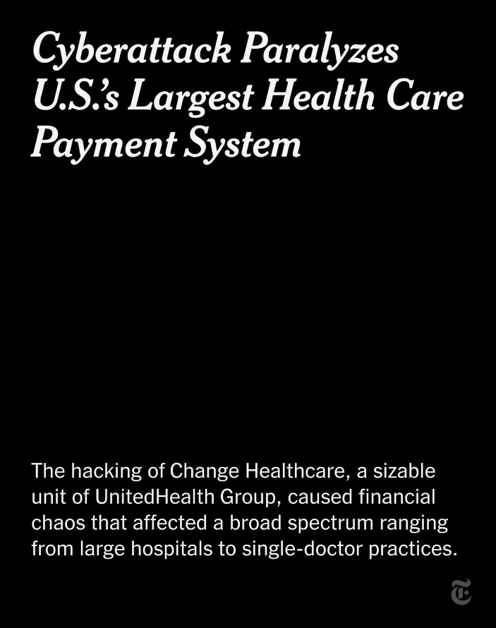
On February 22, 2024, I went to a CVS Pharmacy-Inside-Target in my community to fill a prescription for benzonatate 200 mg capsules. I had caught a bad case of the flu the week before, and subsequently suffered a very long tail of a cough. That’s TMI for me to write about in the Health Populi blog, but this story has a current-events twist: the pharmacist could not electronically link with my insurance company to transact my payment. He tried a few work-flows, and ended up using a discount card which in the moment worked for us, and I paid the
From Evolution to Innovation, from Health Care to Health: How Health Plans With Collaborators Are Re-Defining the Industry
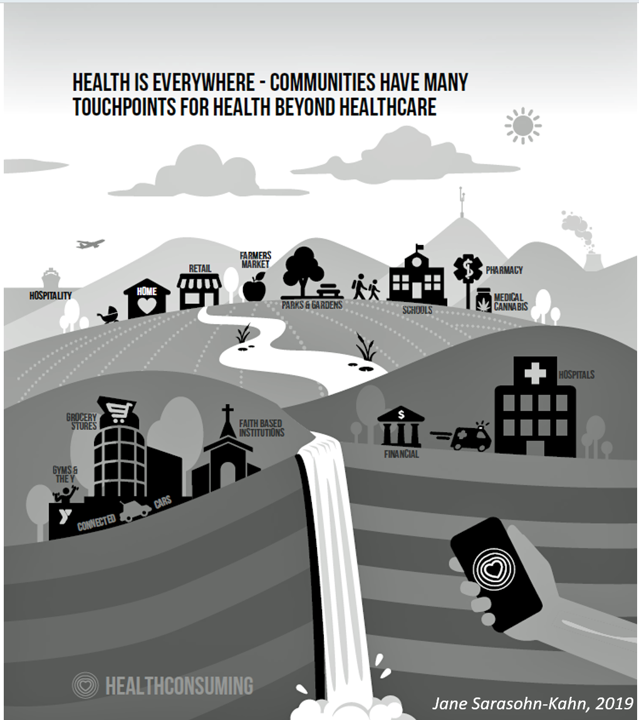
As a constant observer and advisor across the health/care ecosystem, for me the concept of a “health plan” in the U.S. is getting fuzzier by the day. Furthermore, health plan members now see themselves as medical bill payers, seeking value and consumer-level services for their health insurance premium investment. Weaving these ideas together is my mission in preparing a session to deliver at the upcoming AHIP 2024 conference in June, I’m thinking a lot about the evolving nature of health insurance, plans, and the organizations that provide them. To help me define first principles, I turned to the American father
Ethics for AI in Health – A View From The World Health Organization
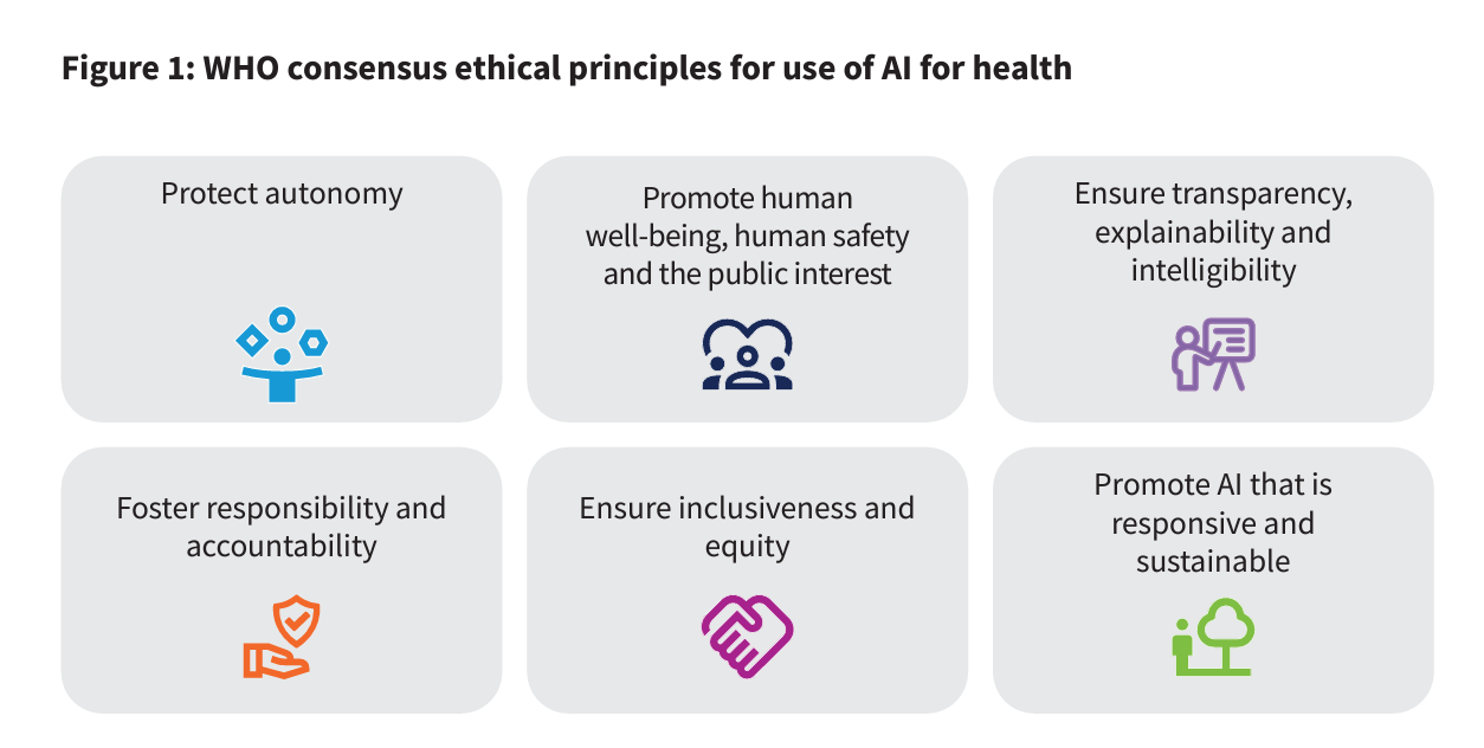
For health care, AI can benefit diagnosis and clinical care, address paperwork and bureaucratic duplication and waste, accelerate scientific research, and personalize health care direct-to-patients and -caregivers. On the downside, risks of AI in health care can involve incomplete or false diagnoses, inaccuracies and errors in cleaning up paperwork, exacerbate differential access to scientific knowledge, and exacerbate health disparities, explained in the World Health Organization’s (WHO) report, Ethics and governance of artificial intelligence for health. WHO has released guidance on the use of large multi-modal models (LMMs) in health care which detail 40+ recommendations for
Access to Technology Is the New Pillar for Well-Being: CES & the UN Partner for Human Security for All
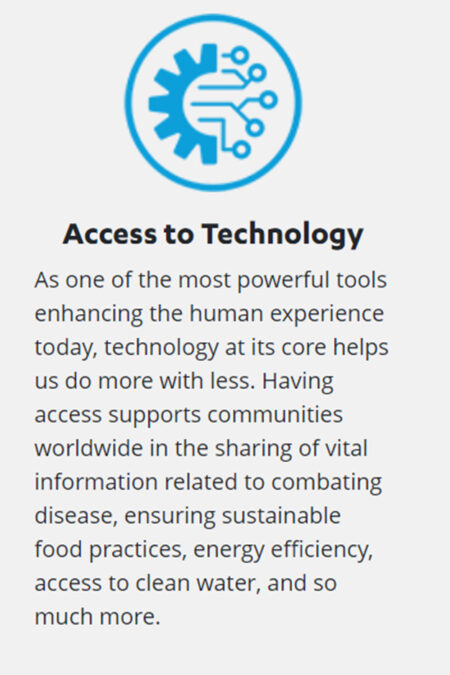
In kicking off #CES2024, CTA’s researchers noted the acceleration of global connectivity, with gaps in peoples’ ability to connect depending where they live: by region, the percent of people connected to the internet today are, according to CTA’s data, 92% in the U.S. 87% in the E.U. 76% in Latin America 73% in China 55% in Nigeria 46% in India. Such gaps in connectivity threaten peoples’ individual well-being, but also social and political stability that impacts the entire world’s security. And not to overlook, as well, the promise of AI to do good at scale at the enterprise-level, globally.
The Consumerization of AI in Healthcare – The Early Days of AI-Trust
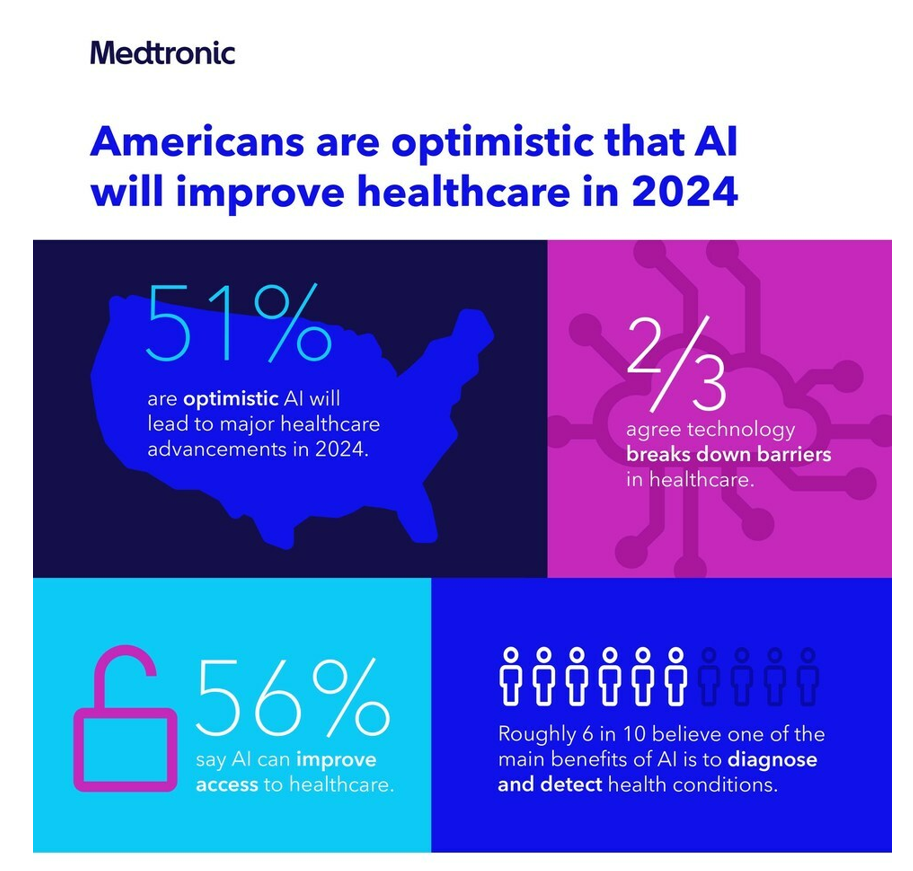
Most people in the U.S. are bullish on the role AI will play in health care in 2024, especially to lower access barriers to care and to diagnose and detect health conditions. Two new studies point to the consumerization of AI in healthcare, from Medtronic and Deloitte. This post weaves their findings together and suggests some planning points for 2024. Medtronic collaborated with Morning Consult to poll 2,213 U.S. adults in late September 2023 to gauge peoples’ perspectives on AI and health care. With such optimism among health consumers comes some
Accenture’s Great Expectations for a Decade of Deconstruction – the 2024 Life Trends Forecast
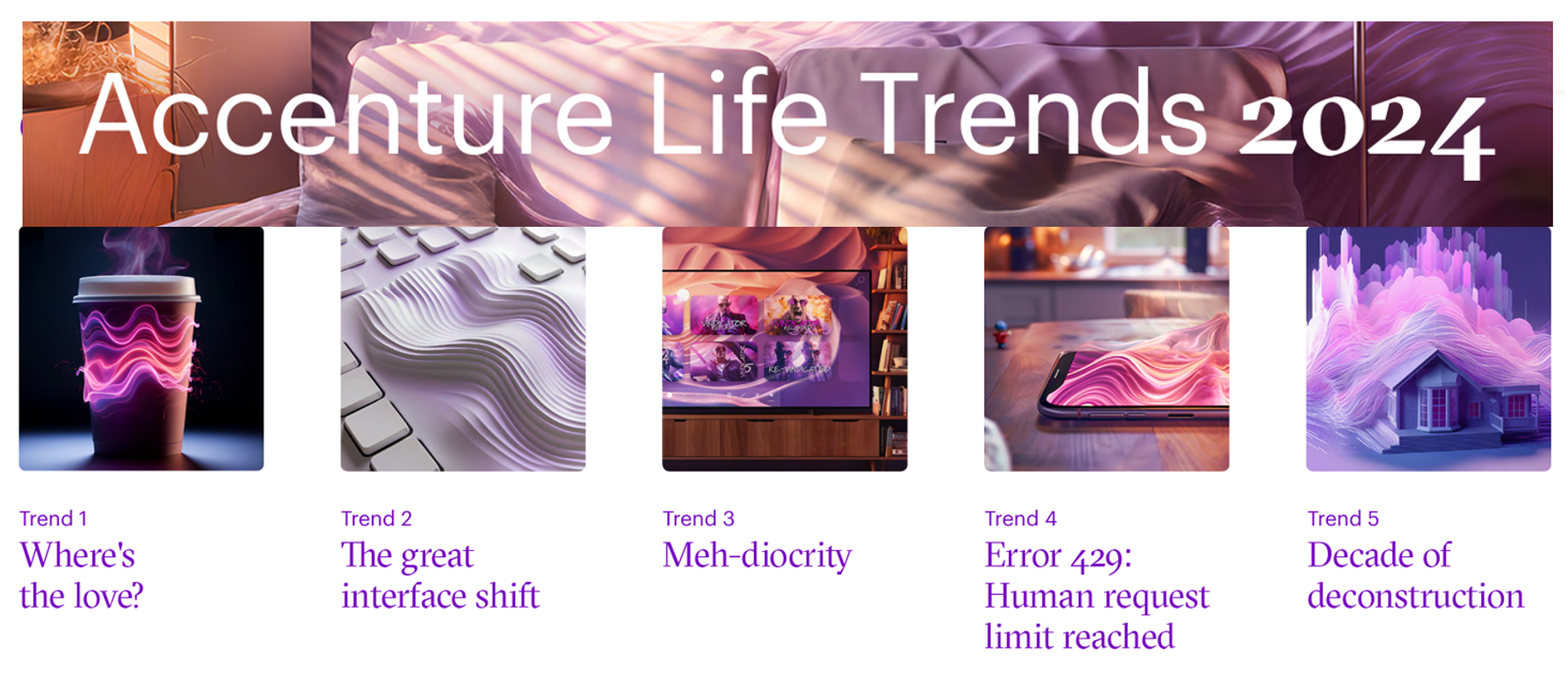
In the company’s 17th annual look into consumers’ “life trends,” Accenture finds that, top-line, “The harmony between people, tech and business is showing tensions, and society is in flux.” And these consumer-facing trends will also shape peoples’ attitudes about their health care, how they access and pay for it, and what kinds of services and support health consumers will expect in this era of “deconstruction.” Taken together, the trends noted in Accenture’s 2024 report on Life Trends finds that one-half of consumers, globally, are changing their life goals, making their jobs and retirement stability more important than
“My Doctor’s Office” Should Accept Wearable Tech Health Data, Most Patients Say
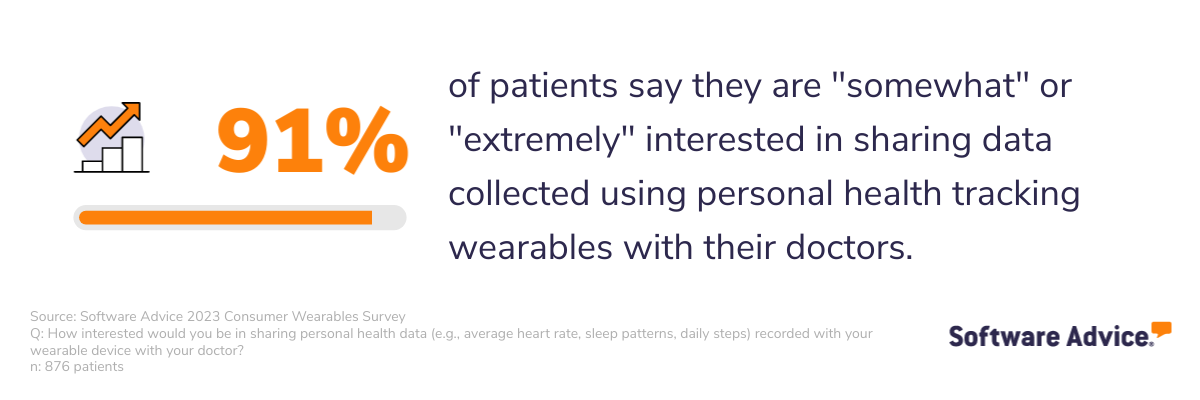
“Do personal health trackers belong in the doctor’s office?” Software Advice wondered. “Yes,” the company’s latest consumer survey found, details of which are discussed in a report published on their website. Unique to this study is the patient sample polled: Software Advice surveyed 876 patients in September 2023 to gauge their perspectives on wearable tech and health. Note that the patient sample was limited to consumers who had seen a health care provider in the past two years and who also owned and used a personal wearable health device such as an Apple Watch or Fitbit. Thus, the responses shared
How Healthcare and Patients Can Benefit From a “Simplicity Premium”
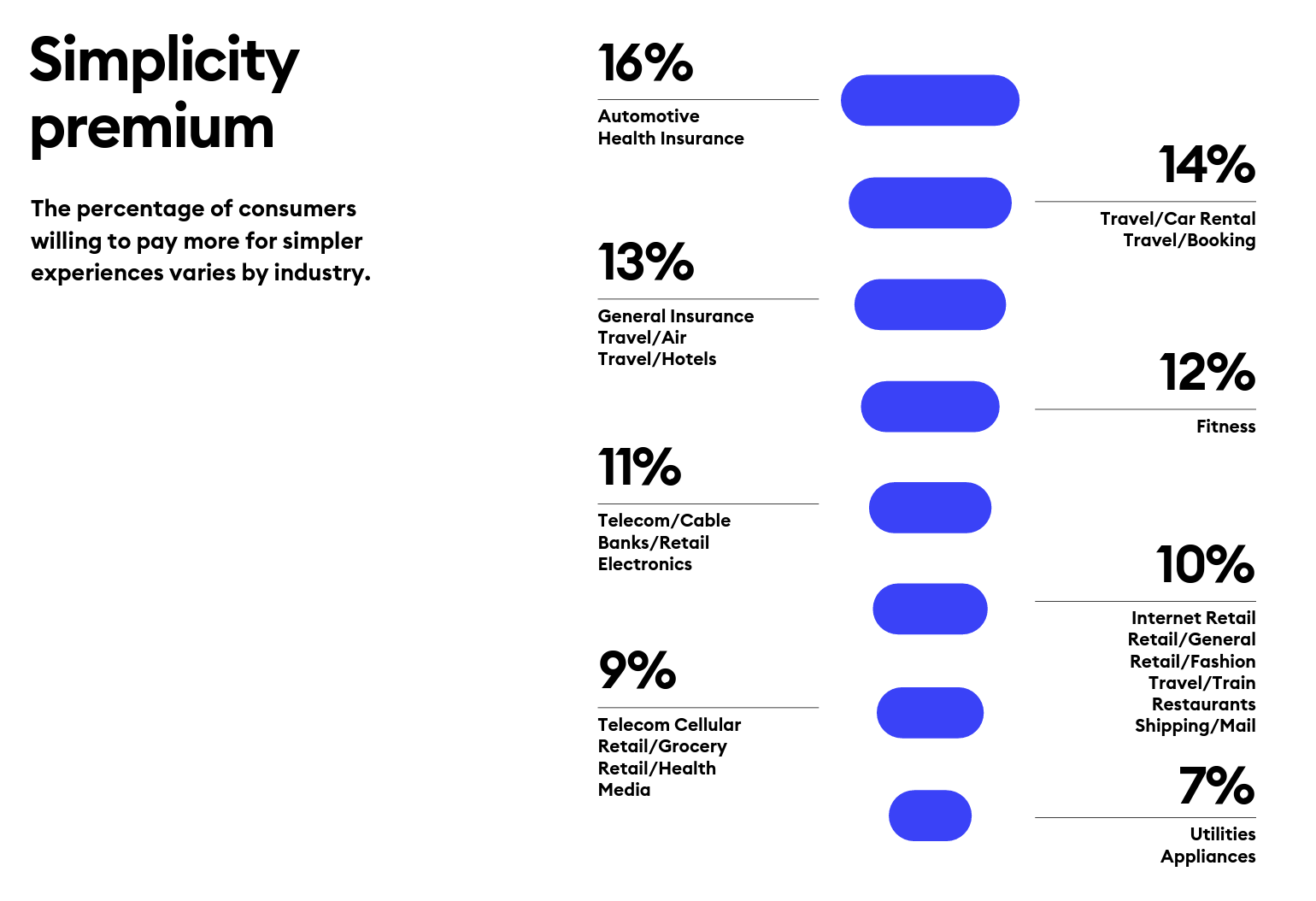
“Simplicity is the ultimate sophistication,” Leonardo DaVinci wrote through his lens on innovation. Simplicity can be a transformational cornerstone of health/care innovation, we learn from Siegel+Gale’s report on the World’s Simplest Brands Tenth Edition (WSBX). Siegel+Gale found the most consumers are willing to pay more for simpler brand experiences and are more likely to recommend a brand for those simpler experiences, as well. Across the 15,000 consumers the firm polled globally (across nine countries), five key factors underpin peoples’ experiences with the enchantingly “simple” companies: they are, Easy to understand Transparent and honest Caring for
What If We Built a Consumer-Enchanting Health System in the Context of HLTH 2023? Building Blocks for the Scenario
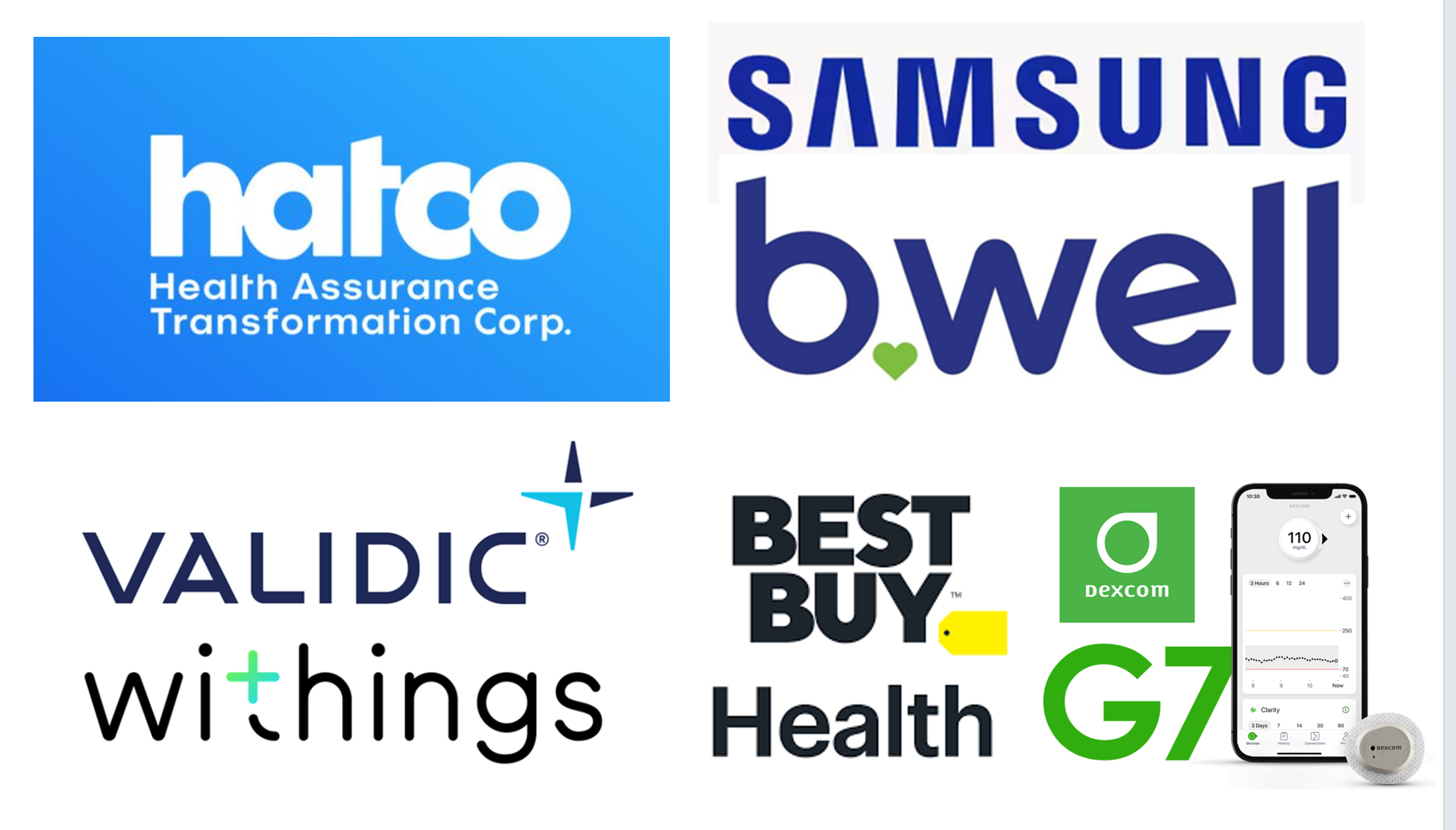
What if….you were given the opportunity to build a health system from scratch in this new era of platforms, cloud computing, AI and machine learning, curious-digital-empowered consumers, and collaborators in retail and community settings operating close to peoples’ homes and workplaces? With the HLTH 2023 Conference meeting up in Vegas these past couple of days, this “what if” scenario can be constructed with announcements coming out of the meeting, coupled with recent developments in the larger health/care ecosystem. Start with General Catalyst’s news of engaging Dr. Marc Harrison, most recently CEO of Intermountain Health,
The Clinician of the Future: A Partner for Health, Access, Collaboration, and Tech-Savviness
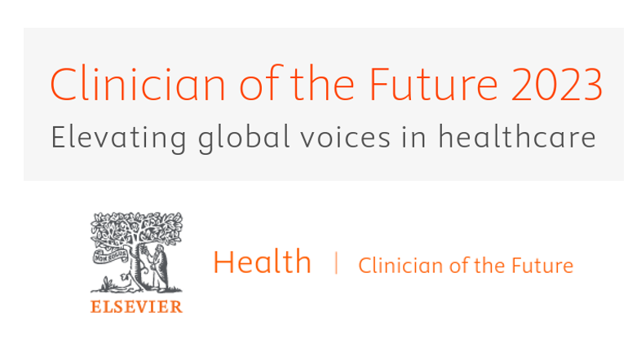
One-half of clinicians working in the U.S., doctors and nurses alike, are considering leaving their current role in the next two to three years. That 1 in 2 clinicians is significantly greater than the global 37% of physicians and nurses thinking about leaving their roles in the next 3 years, according to the report Clinician of the Future 2023 from Elsevier. Elsevier first conducted research among doctors and nurses for the Clinician of the Future report in 2022, following up this year’s survey research online among 2,607 clinicians working around the world: Elsevier polled
Consumers Continue to Spend on Technology, Seeking “A Happy, Healthy Connected Life”
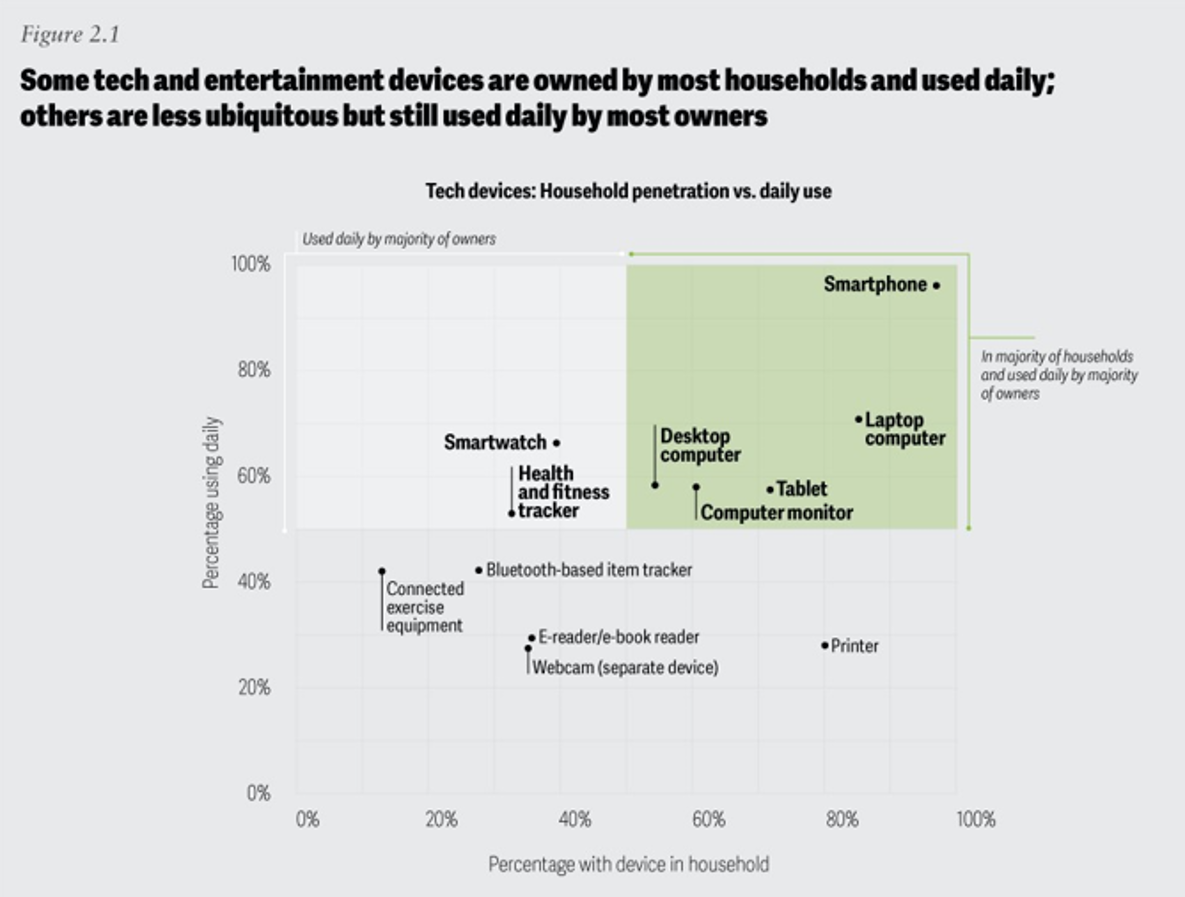
Most U.S. consumers will continue to spend their disposable incomes on connected consumer devices, but will be looking for more balance in their digital lives according to Deloitte’s fourth annual 2023 Connected Consumer Survey. In this year’s update, the Deloitte Center for Technology, Media & Telecommunications found that most households use five key digital devices daily: above all, smartphones, followed by laptop and desktop computers, tablets, and computer monitors. Most consumers who own smartwatches and health and fitness trackers also use those devices every day, as shown in the household penetration/usage chart
The Elevator, Trust and the Data Commons: Bart de Witte Makes the Case for Open AI for Health at WHO/Europe
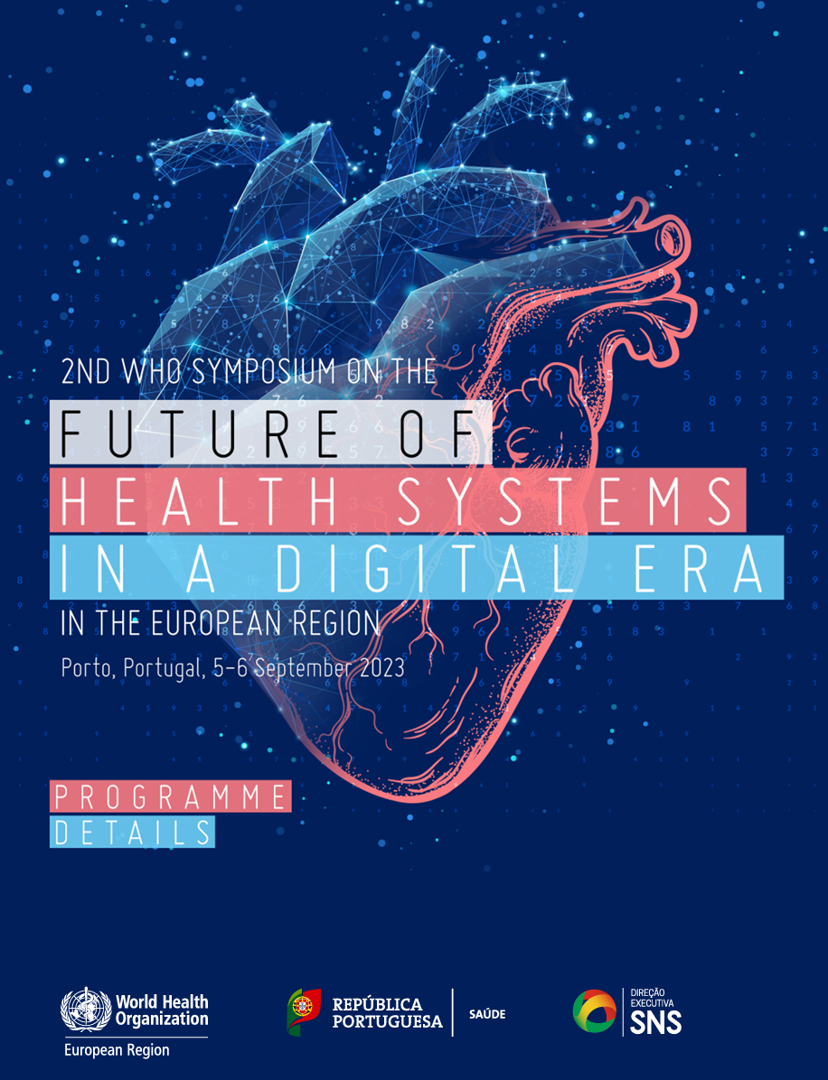
“I’m in Berlin, and we don’t like walls,” Bart De Witte responded in a concluding Q&A session yesterday at the 2nd Symposium on the Future of Health Systems, convened by the World Health Organization (WHO) in Porto on 5th September. Over two days, this meeting convened stakeholders focused on WHO’s European Region to support the Organization’s digital health action plan for 2023-2030 – which fosters cross-nation health planning covering the EU space. AI’s promise in health care to automate and streamline administration, and augment diagnosis and treatment, comes with accompanying risks that can
From Managing Healthcare Providers’ Costs to “Revolutionizing” Care – Bain Looks at the Short- and Long-Term for Generative AI

“Generative AI already has the power to alleviate some of providers’ biggest woes, which include rising costs and high inflation, clinician shortages, and physician burnout,” Bain & Company observe in Beyond Hype: Getting the Most Out of Generative AI in Healthcare Today. By the end of this paper, the Bain team expects that those health care leaders who are investing in generative AI today (to start small, to win big in the report’s words) will learn key lessons that will put them “on a path to eventually revolutionize their businesses.” Bain & Company surveyed U.S. health system leaders to gauge their
Location, Location, Location – Understanding Health Consumers’ Evolving Definition of Convenience
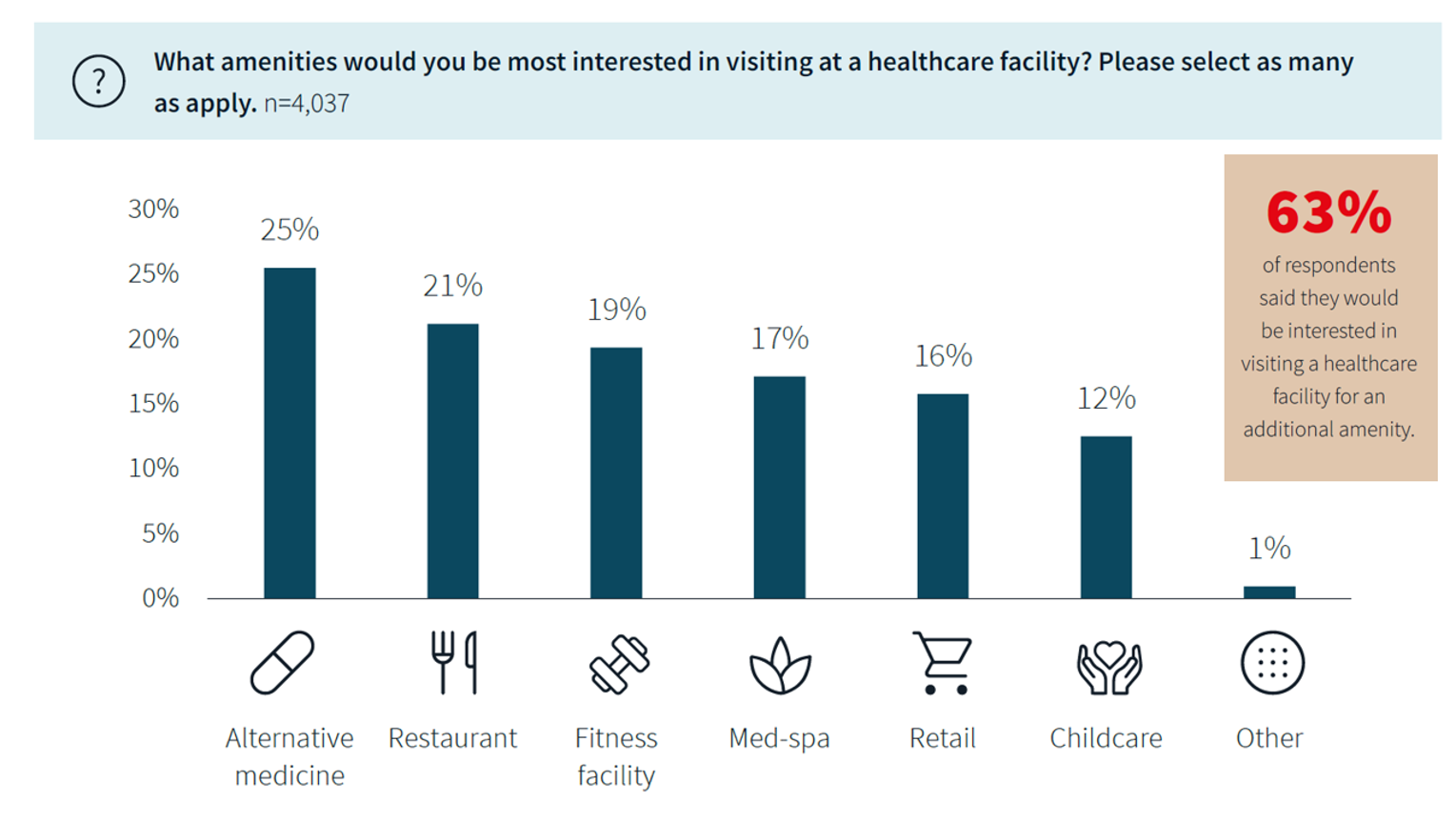
The definition of “convenience” in the eyes of patients, consumers, and caregivers is multi-faceted, with the concept of “location” shifting both physically and digitally. We learn this in new research from JLL, the global real estate services company. “Why is a real estate services company doing research into consumers’ views on health care?” you might ask. See my Hot Points below, discussing my views on the morphing of health care real estate from Pill Hill and inpatient hospitals to the home and closer-to-home sites. In the 2023 Patient Consumer Survey report, the topline lesson
A “Great Re-Set” for Telehealth and Remote Monitoring? Panda Health Says That’s a “Yes”
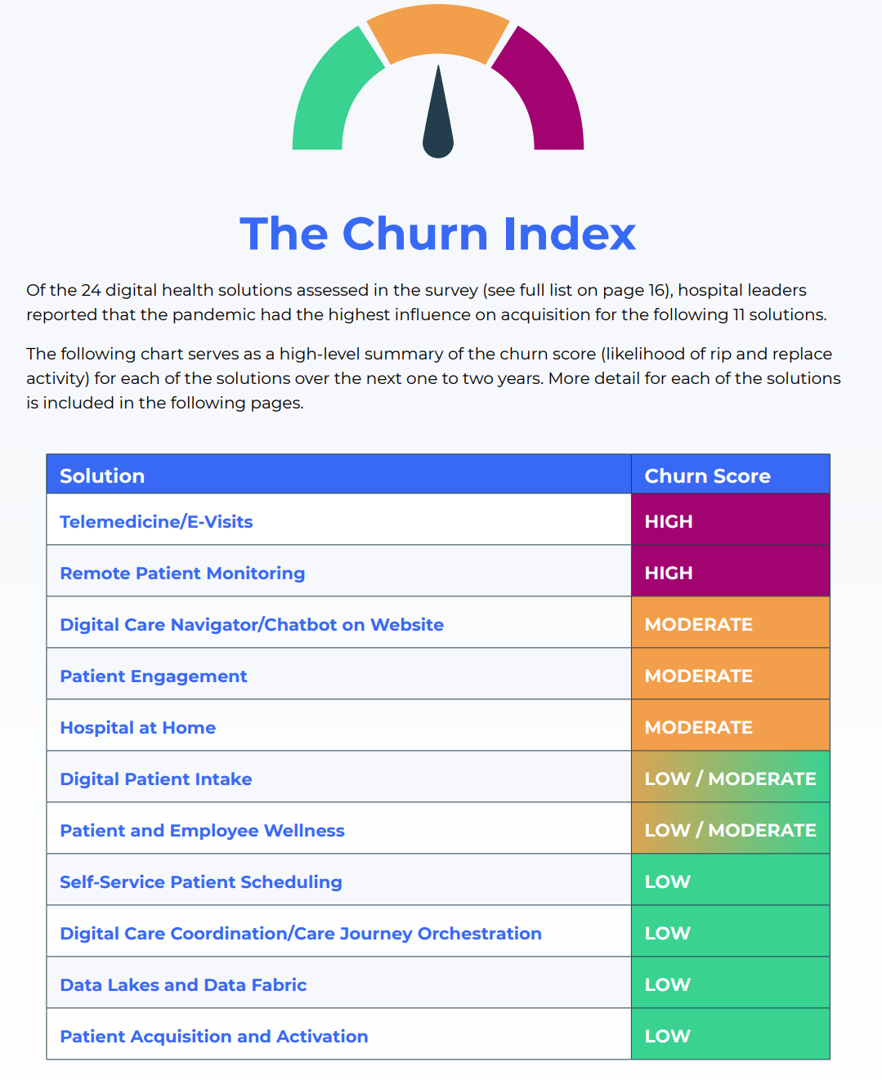
The fast-growing adoption of telemedicine and remote patient monitoring from the emergence of the COVID-19 pandemic led to hospitals and health systems launching new or expanding existing virtual care programs to accommodate a new reality for work-flow and patient care. Now that the worst of the coronavirus acute impact is in our rear-view mirror, it appears medical care providers are reassessing these implementations and may “rip [out] and replace” those systems, according to The Great Shakeup, a survey report from Panda Health. Panda Health collaborated with Sage Growth Partners
Health Systems Must Move “Beyond the Walls” to Support Consumers’ Well-Being
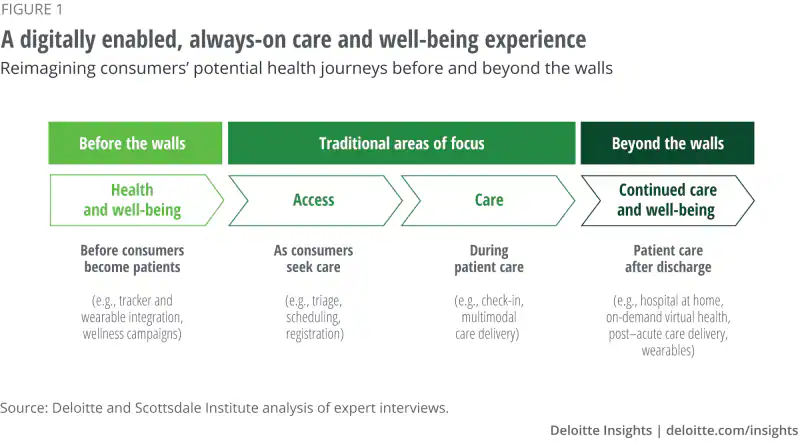
Hospitals’ and health systems’ core competencies have been serving patients “within the walls” of their organizations and institutions. As health systems continue to evolve value-based services while meeting patients’ consumer-oriented demands for convenience and personalization, digital transformation is required, enabling care “beyond-the-walls.” We learn more about this vision and how to map the journey to getting there in the report Integrating digital health tools to help improve the whole consumer experience from the Deloitte Center for Health Solutions and the Scottsdale Institute. This report is based on detailed interviews with experts in 30 US health
Virtual Health Care Can Reduce Carbon Emissions: the Environmental ROI on Telehealth
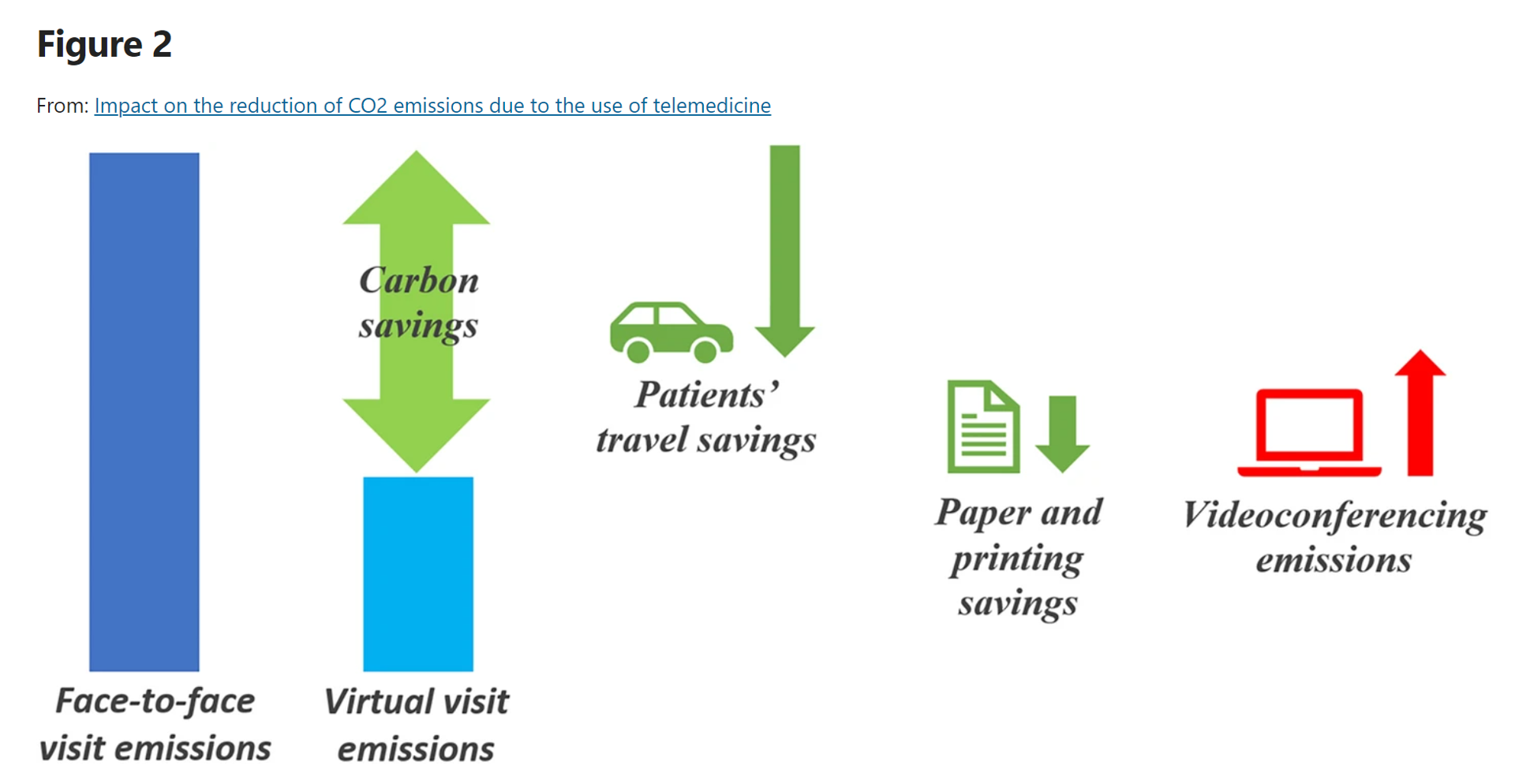
As implemented in the COVID-19 era and its immediate wake, the most obvious environmental benefits offered by telehealth visits replacing in-person patient encounters have been achieved through reduced patient travel, considering The Role of Virtual Consulting in Developing Environmentally Sustainable Health Care, a systematic literature review published in the Journal of Medical Internet Research. This study, led by researchers at the University of Oxford, UK, and the University of Oslo, Norway, identified over 1,600 scientific papers, narrowing the most rigorous and relevant to 23 papers focusing on virtual consulting and carbon emissions. This is an important question for two major
“Your care, your way:” Learning from the Philips Future Health Index 2023
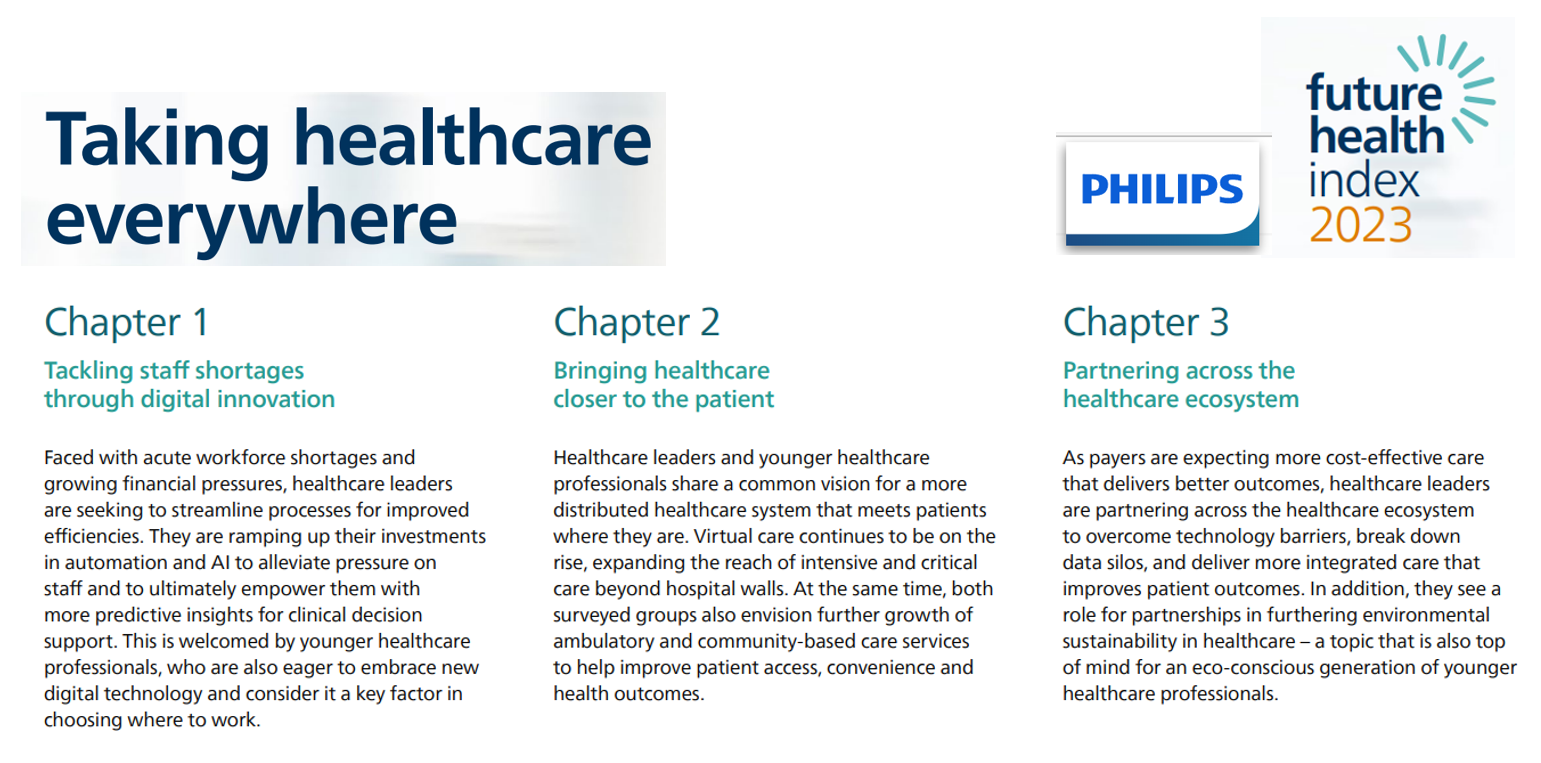
Consider the key drivers of supply and demand in health care, globally, right now: On the medical delivery supply side, the shortage of staff is a limiting factor to continuing to deliver care based on the usual work-flows and payment models. On the demand side, patients are taking on more demanding roles as consumers with high expectations for service, convenience, and safe care delivered closer to home — or at home. This dynamic informs The Future Health Index 2023 report from Philips, launched this week at HIMSS 2023. This is the eighth annual global FHI report, with detailed country-specific analyses to
Patients Have AI-Disconnect When it Comes to Their Health Care – Pew Research Center Insights
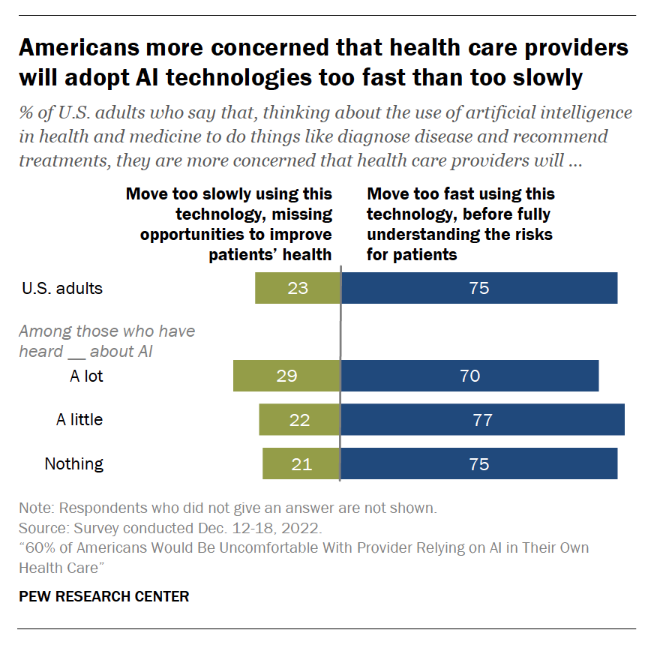
Most U.S. health citizens think AI is being adopted in American health care too quickly, feeling “significant discomfort…with the idea of AI being used in their own health care,” according to consumer studies from the Pew Research Center. The top-line is that 60% of Americans would be uncomfortable with [their health] provider relying on AI in their own care, found in a consumer poll fielded in December 2022 among over11,000 U.S. adults. Most consumers who are aware of common uses of AI know about wearable fitness trackers that can analyze exercise and sleep
How Consumers and Physicians View Digital Health – An Update from the Consumer Technology Association
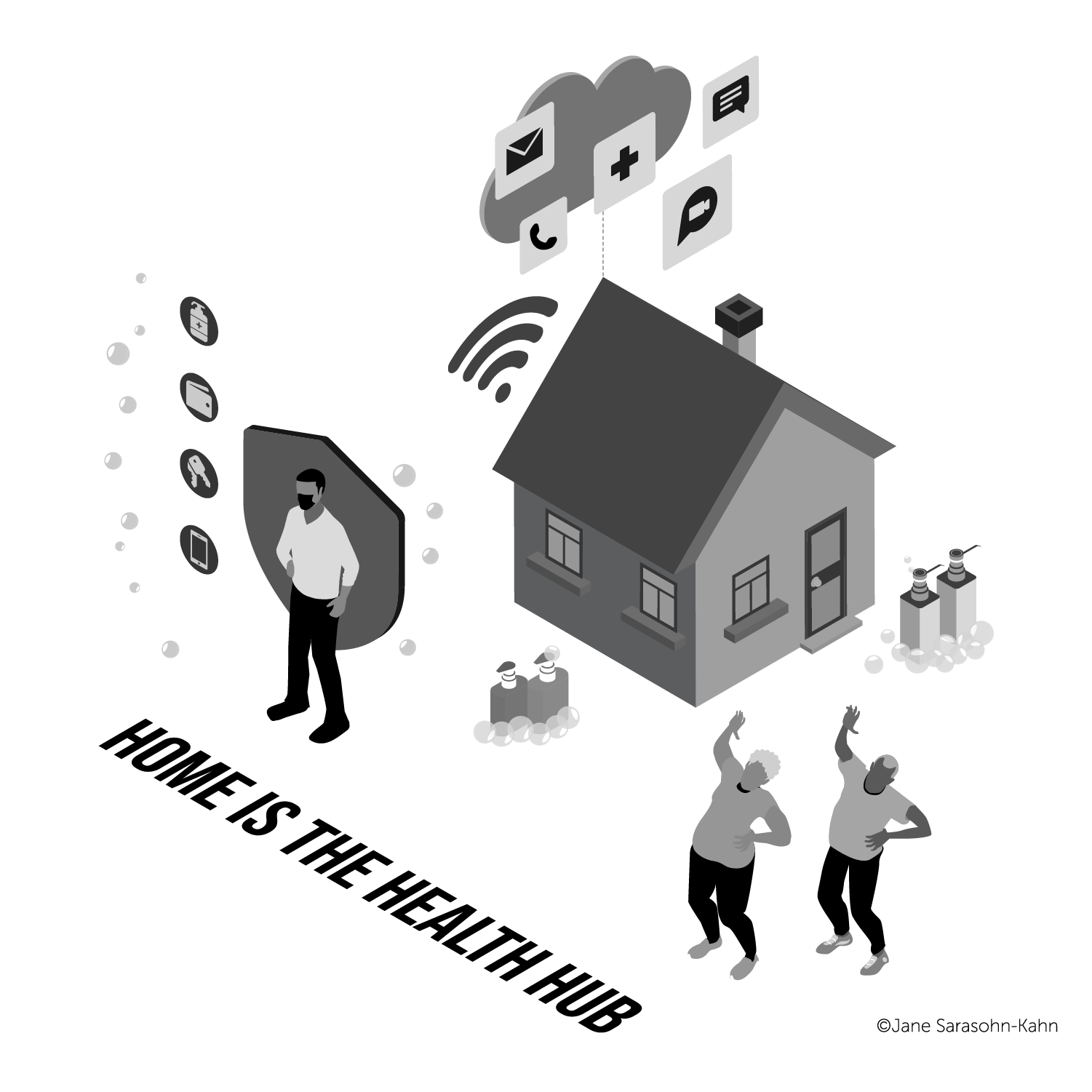
Most consumers are bullish on the benefits that digital health technologies can play in their health. Most health care practitioners are also positive about the potential of digital health — recognizing room for improvement for better data integration, interoperability, and the opportunity to bridge gaps to achieve health equity and bolster access. So assesses the Consumer Technology Association in the report, Driving Consumer Adoption of Digital Health Solutions, To paint this profile, CTA engaged Ipsos to poll 1,000 U.S. consumers 18 years and older, 300 health care providers (HCPs), and 12 health tech company stakeholders in August and September 2022.
Integration is the New Innovation for Healthcare in 2023: Reflections on CES2023 and JPM2023

The peak of venture investment for digital health was in 2020 and 2021, precipitously declining later in 2022. And the outlook for 2023 is practical and Show-Me: that is, demonstrate clinical outcomes and return-on-investment before “I” (for investors) can take a leap of faith to spend a dollar, a Yen, a Euro, or British pound on a shiny new-new healthcare thing. If it’s January, then CES and JP Morgan convene their influential annual meetings which feature health technology for globally engaged health industry stakeholders — investors, surely, but also providers, innovators, analysts, and insurers. In my January
The Heart Health Continuum at #CES2023 – From Prevention and Monitoring to Healthy Eating and Sleep
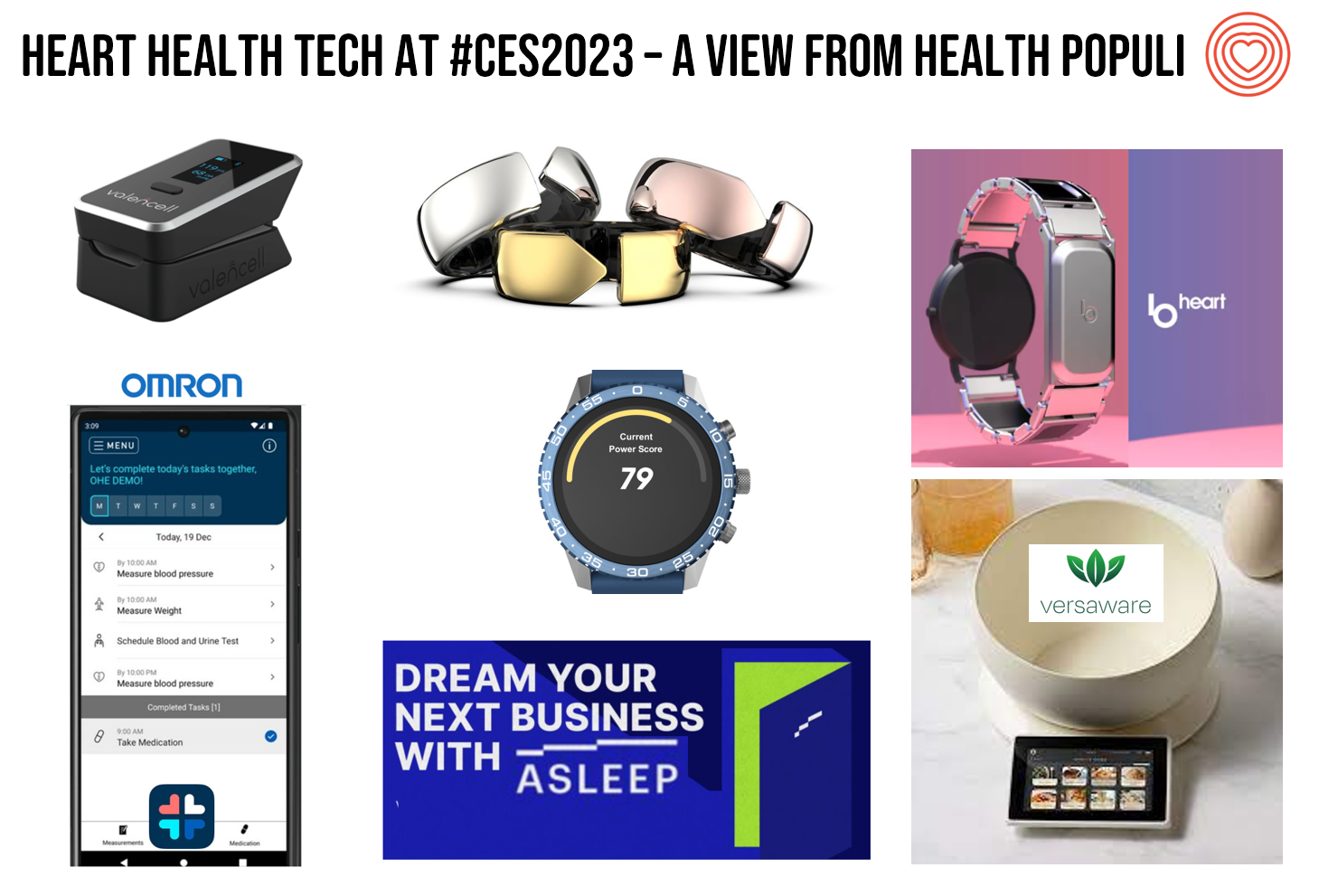
“Are we losing the battle against heart disease?” asks the lead article featured in the January 2023 issue of the AARP Bulletin. “Despite breathtaking medical advancements since President Harry Truman declared war on heart disease 75 years ago, researchers have observed a disturbing trend that started in 2009: America’s death rate from heart-related conditions is climbing again,” the detailed essay explains. AARP is in fact a very visible stakeholder in the 2023 CES, collaborating on the AgeTech content track at the tech conference. The track covers all aspects of aging well, from financial health to entertainment,
Omnichannel, Hybrid Health Care Is Happening – Let’s Bake It with Access and Equity
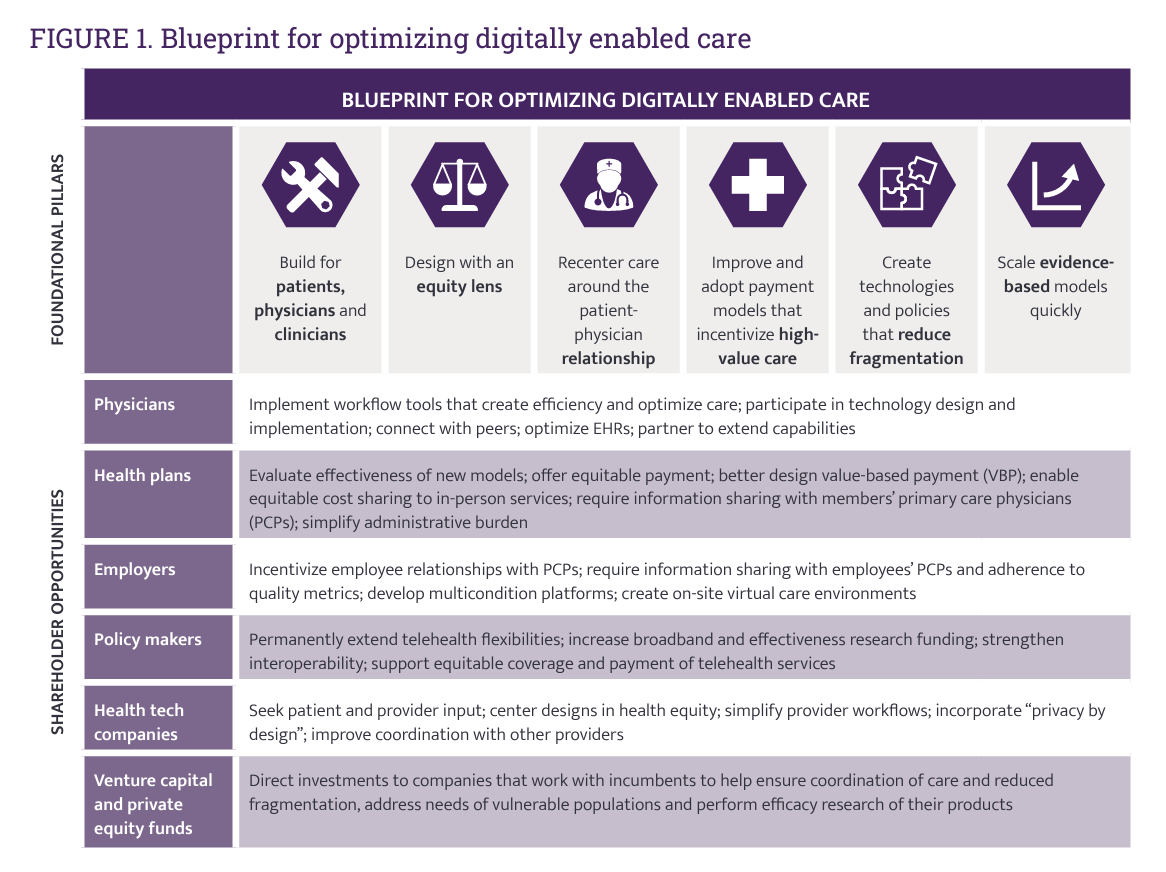
In just the past few months, we’ve seen the launch of Amazon Care, Instacart adding medical deliveries, and The Villages senior community welcoming virtual care to their homes. Welcome to the growing ecosystem of hybrid health care, anywhere and everywhere. In my latest post on the Medecision portal, I discuss the phenomenon and examples of early models, focusing in on Evernorth, a Cigna company. As we add new so-called “digital front doors” to health care delivery, we should be mindful to design in access and equity and avoid further fragmentation of an already-fragmented
In Search of Clinical Effectiveness, But “Investment Exuberance?” Not So Much. Insights From FINN Partners and Galen Growth at HLTH 2022
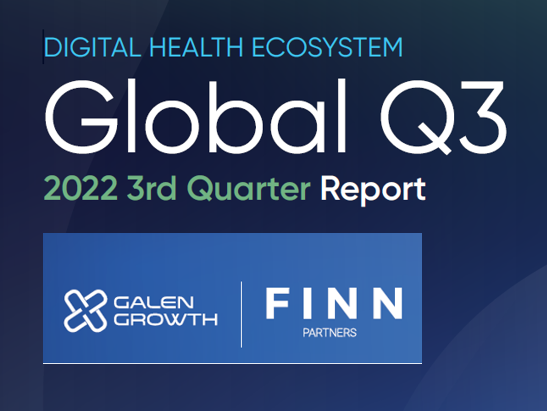
While venture funding for digital health technology declined globally by 35% in the first three quarters of 2022 compared with 2021, this marks a “return to normal” based on the assessment in the Global State of Digital Health Report from FINN Partners and Galen Growth, published today and launched during the HLTH 2022 conference. The report analyzes data from over 12,000 digital health ventures tracked by Galen Growth’s HealthTech Alpha platform. The first chart illustrates the change in venture funding by therapeutic area, showing downturns in four of the five areas called
Thinking Value-Based Health Care at HLTH 2022 – A Call-to-Action
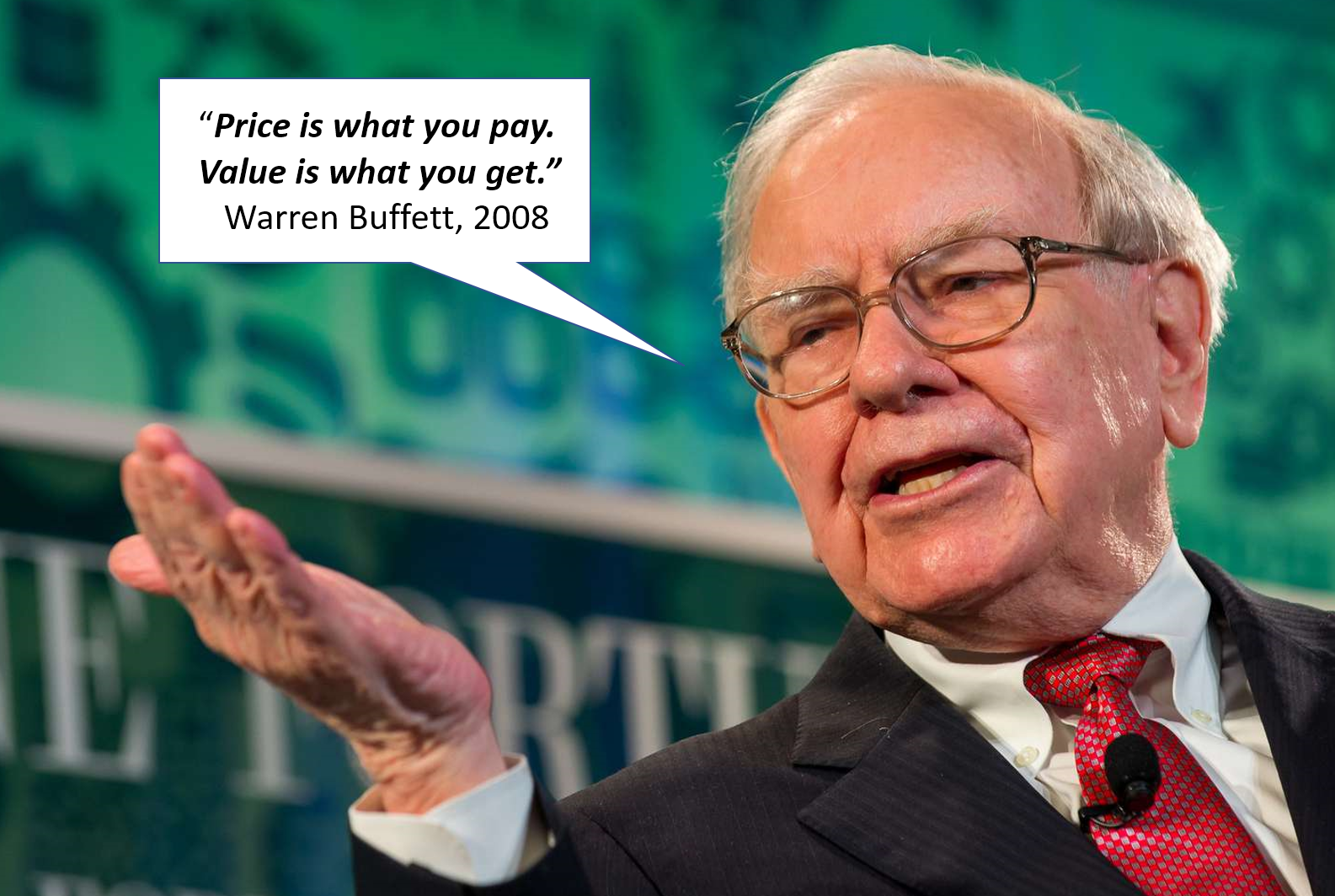
The cost of health insurance for a worker who buys into a health plan at work in 2022 reached $22,463 for their family. The average monthly mortgage payment was $1,759 in mid-2022. “When housing and health both rank as basic needs in Maslow’s hierarchy, what’s a health system to do?” I ask in an essay published today on Crossover Health’s website titled Value-Based Care: Driving a Social Contract of Trust and Health. The answer: embrace value-based care. Warren Buffett wrote Berkshire Hathaway shareholders in 2008, asserting that, “Price is what you pay. Value
How Will the “New” Health Economy Fare in a Macro-Economic Downturn?
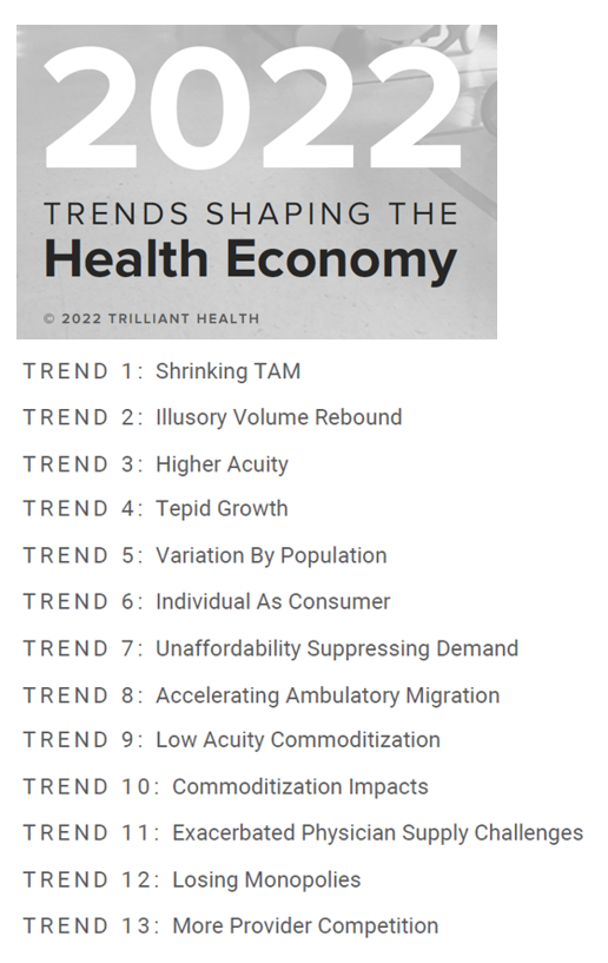
What happens to a health care ecosystem when the volume of patients and revenues they generate decline? Add to that scenario a growing consensus for a likely recession in 2023. How would that further impact the micro-economy of health care? A report from Trilliant on the 2022 Trends Shaping the Health Economy helps to inform our response to that question. Start with Sanjula Jain’s bottom-line: that every health care stakeholder will be impacted by reduced yield. That’s the fewer patients, less revenue prediction, based on Trilliant’s 13 trends re-shaping the U.S. health
Telehealth-As-Healthcare Is a Mainstream Expectation Among Consumers, J.D. Power Finds
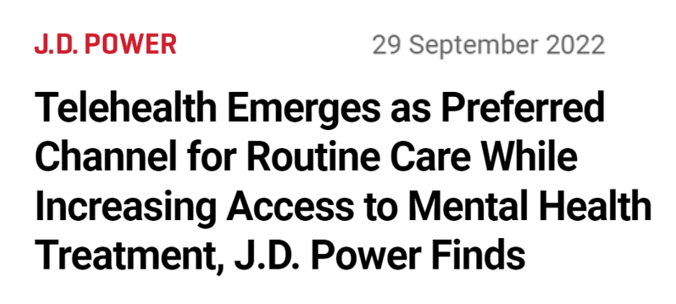
Telehealth has increased access to mental health services, I’ve highlighted this Mental Illness Awareness Week here in Health Populi. But telehealth has also emerged as a preferred channel for routine health care services, we learn from J.D. Power’s 2022 Telehealth Satisfaction Study. Among people who had used virtual care in the past year, telehealth-as-healthcare is now part of mainstream Americans’ expectations as a normal part of their medical care. That’s because 9 in 10 users of telehealth in the U.S. would use virtual care to receive medical services in the future, J.D. Power found in
Big Tech + Digital Health: Even Big-Ticket Mistakes Won’t Dissuade Companies From Healthcare
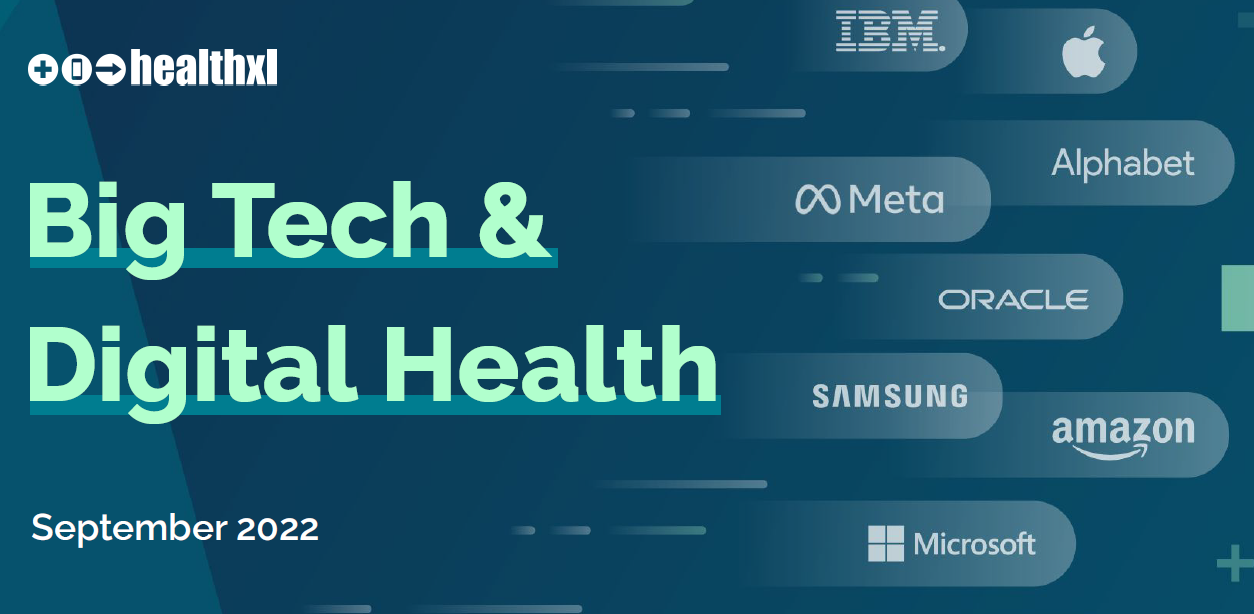
“Big Tech has the capability to disrupt healthcare, though the complexity of healthcare ecosystems is not making it easy for these companies,” according to Big Tech & Digital Health, a detailed update from HealthXL published last week. The pace of activity among Big Tech companies partnering with, investing in, and acquiring health technology and provider organizations has been dizzying, accelerating in and beyond the pandemic. This report profiles the current state and prospects for so-called “Big Tech” companies in the broad health/care ecosystem. For context, “Big Tech” in this report covers activity among eight companies
Health is Everywhere, and Telehealth Is Health – And It’s Personal
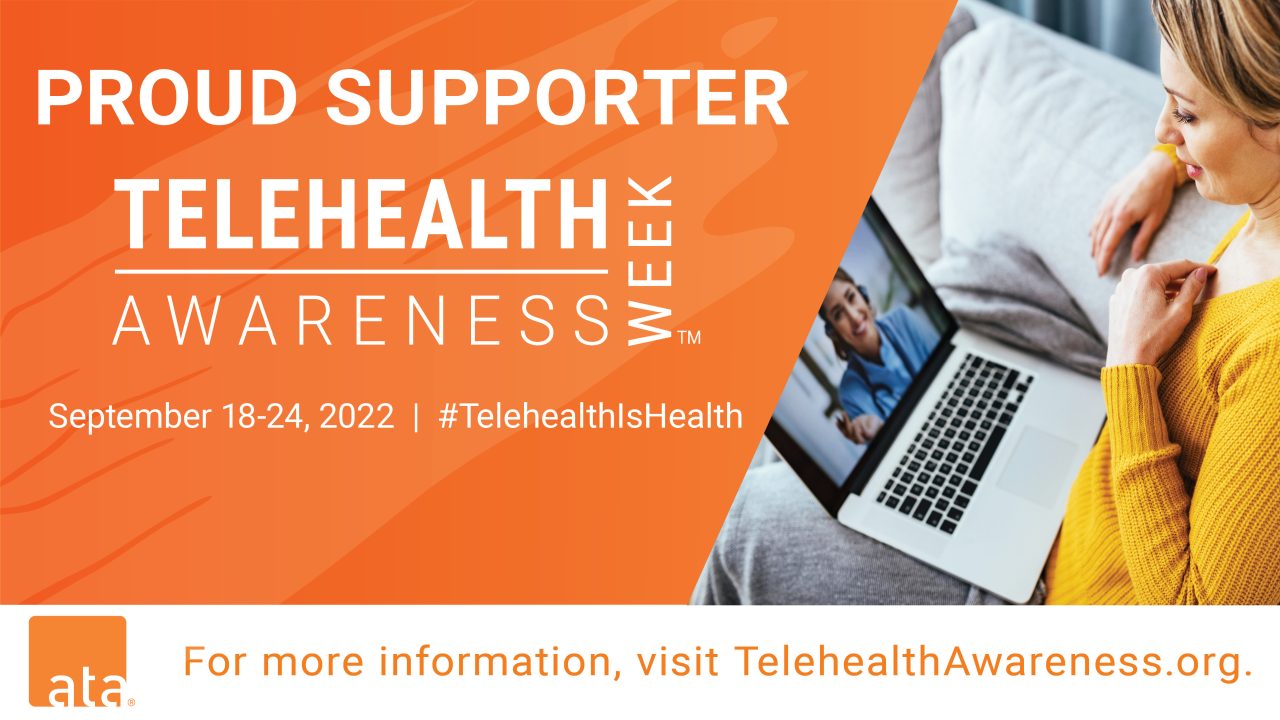
If health is nurtured and made where we live, work, play pray, learn, and shop, then healthcare should be everywhere. That’s the promise, increasingly a reality, of telehealth. We are in the middle of Telehealth Awareness Week, an advocacy program launched by the ATA (American Telemedicine Association) whose mission I share — that #TelehealthIsHealth. Follow that hashtag on Twitter and other social media channels, and you’ll find lots of folks who believe, know, and live this. My personal telehealth journey began with an online encounter in December 1996 when my husband and I were
The Direct Link Between Value-Based Health Care, Digital Transformation and Social Determinants – Insights from Innovaccer and Morning Consult
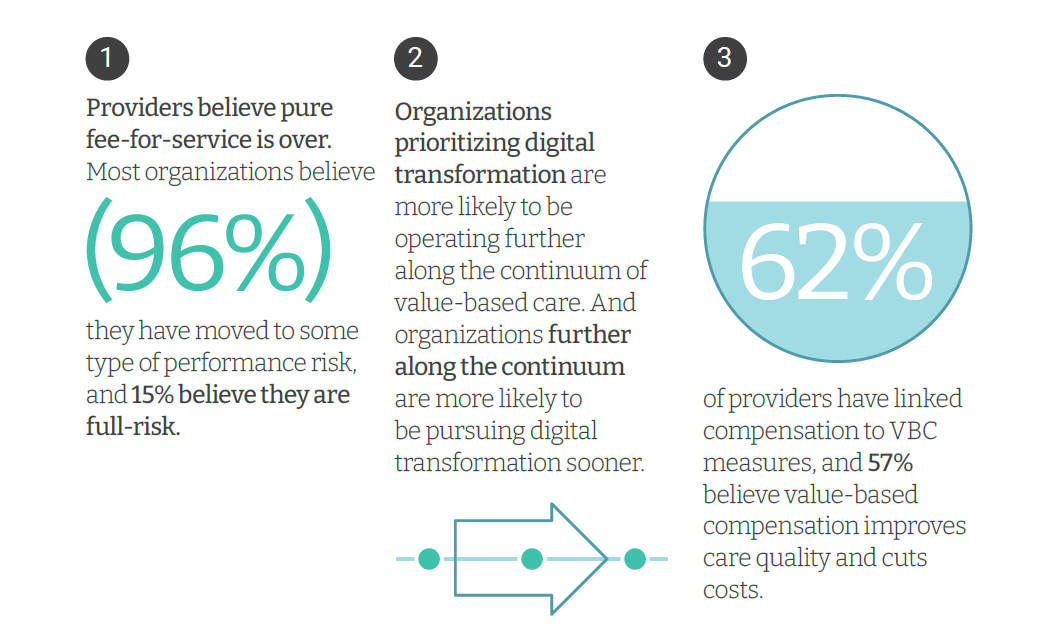
Only 4% of health care payments in the U.S. are pure fee-for-service (FFS) these days. “The end of pure FFS is near,” according to The State and Science of Value-Based Care, a report-out of survey research from Innovaccer and Morning Consult. Innovaccer, a health cloud/data analytics company, worked with Morning Consult to do deep-dive interviews with 75 senior health care executives; research was conducted in November and December 2021, so these perspectives represent those of health system leaders at the start of 2022. The full report is worth your read; my focus in this Health





 Interviewed live on BNN Bloomberg (Canada) on the market for GLP-1 drugs for weight loss and their impact on both the health care system and consumer goods and services -- notably, food, nutrition, retail health, gyms, and other sectors.
Interviewed live on BNN Bloomberg (Canada) on the market for GLP-1 drugs for weight loss and their impact on both the health care system and consumer goods and services -- notably, food, nutrition, retail health, gyms, and other sectors. Thank you, Feedspot, for
Thank you, Feedspot, for  As you may know, I have been splitting work- and living-time between the U.S. and the E.U., most recently living in and working from Brussels. In the month of September 2024, I'll be splitting time between London and other parts of the U.K., and Italy where I'll be working with clients on consumer health, self-care and home care focused on food-as-medicine, digital health, business and scenario planning for the future...
As you may know, I have been splitting work- and living-time between the U.S. and the E.U., most recently living in and working from Brussels. In the month of September 2024, I'll be splitting time between London and other parts of the U.K., and Italy where I'll be working with clients on consumer health, self-care and home care focused on food-as-medicine, digital health, business and scenario planning for the future...